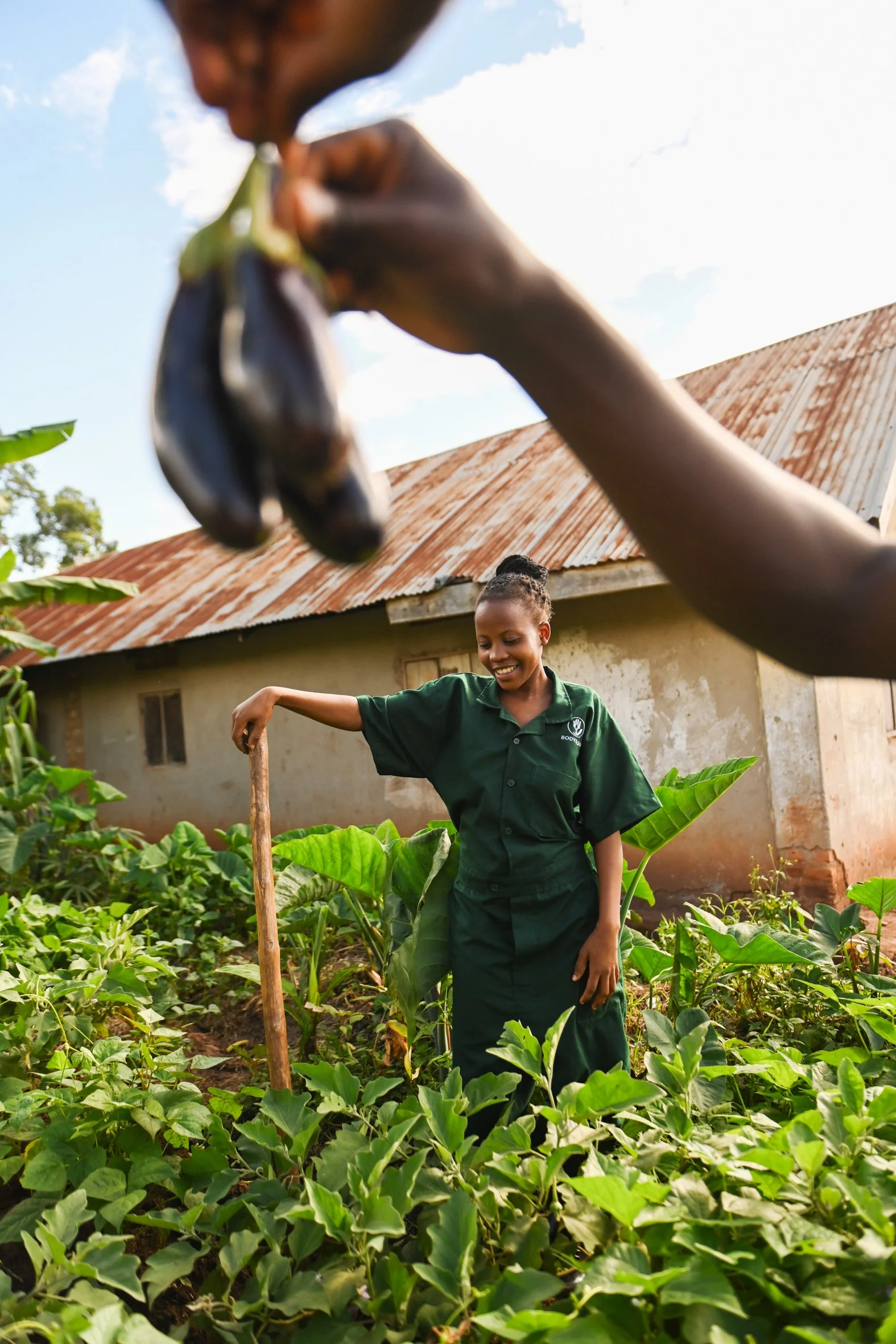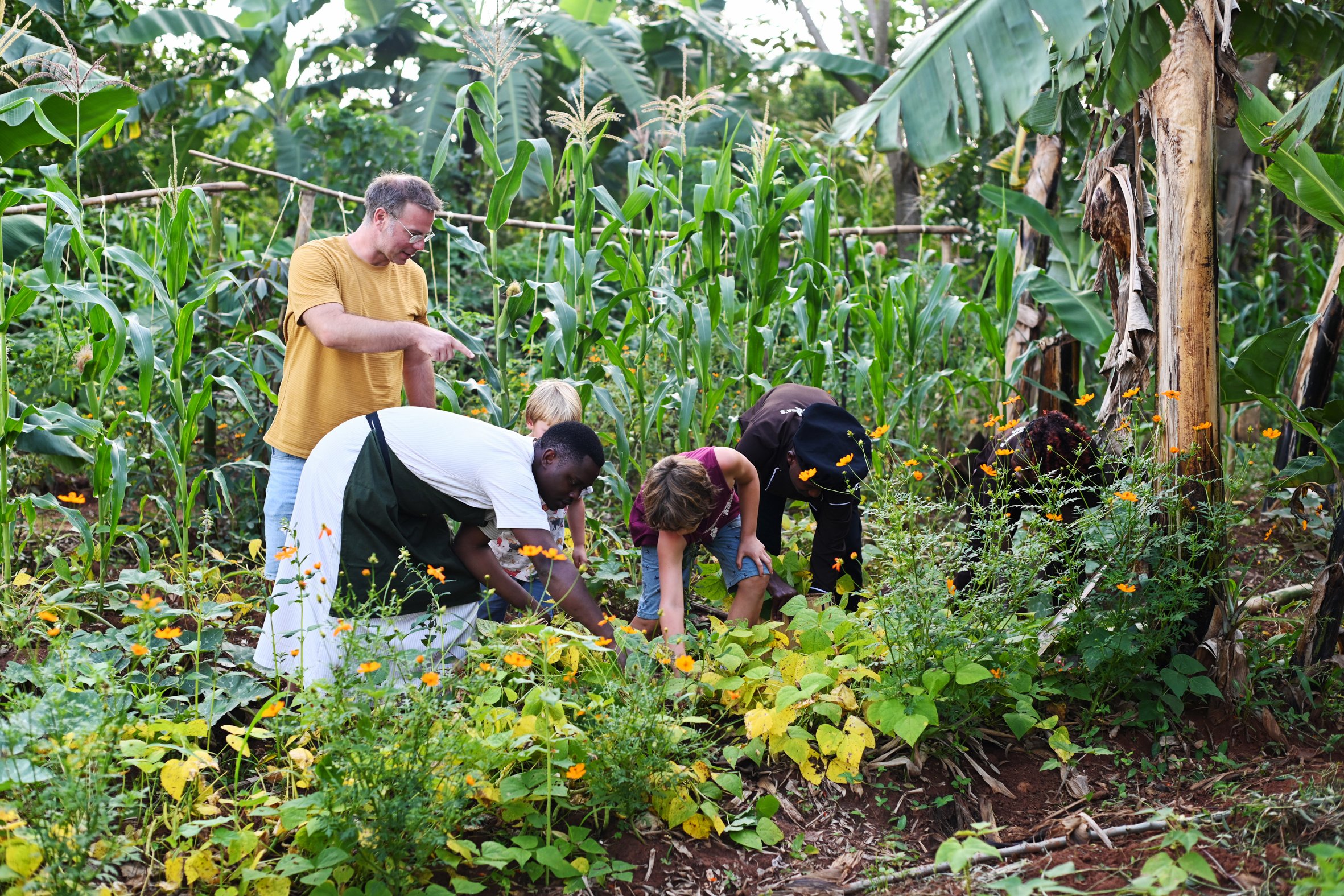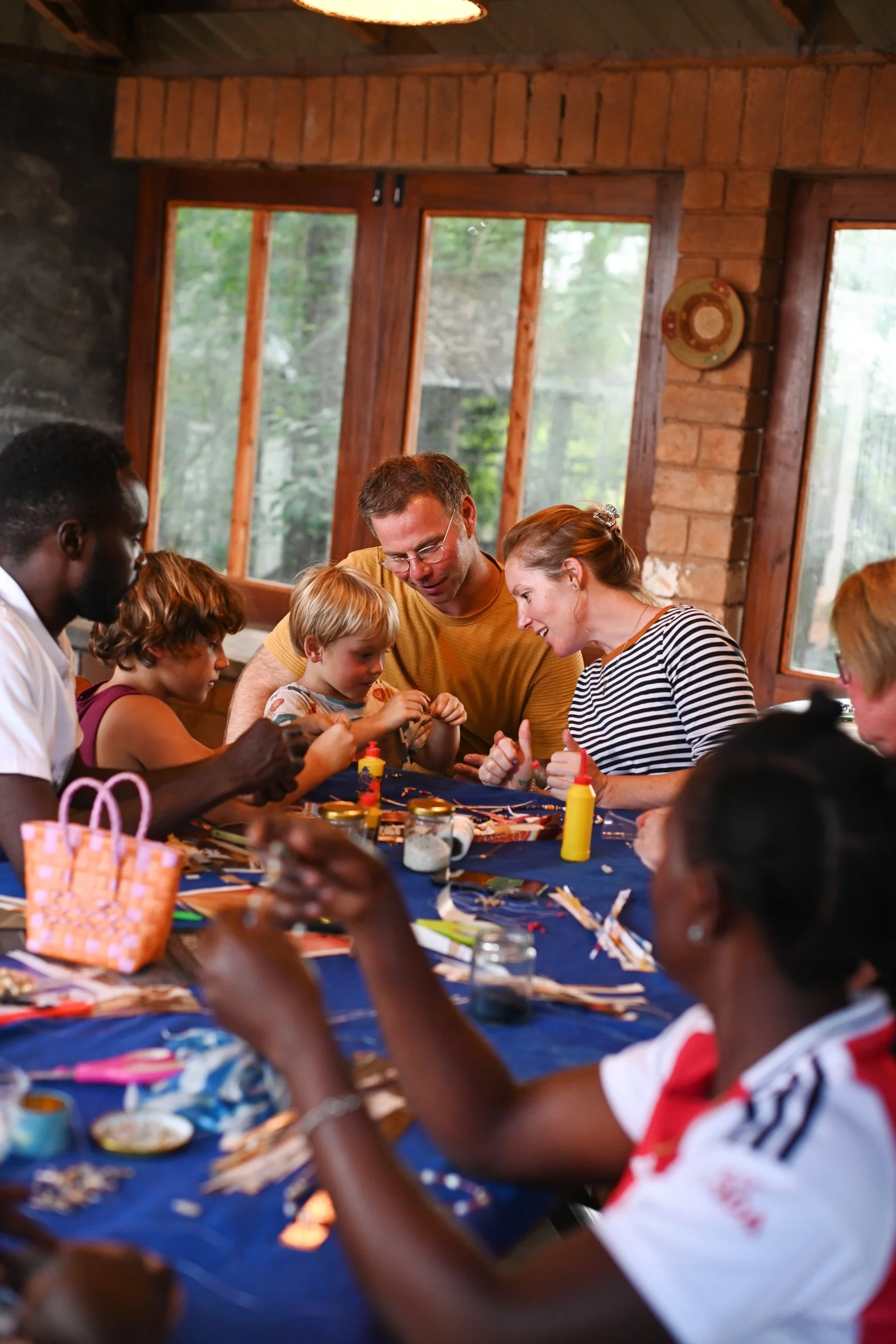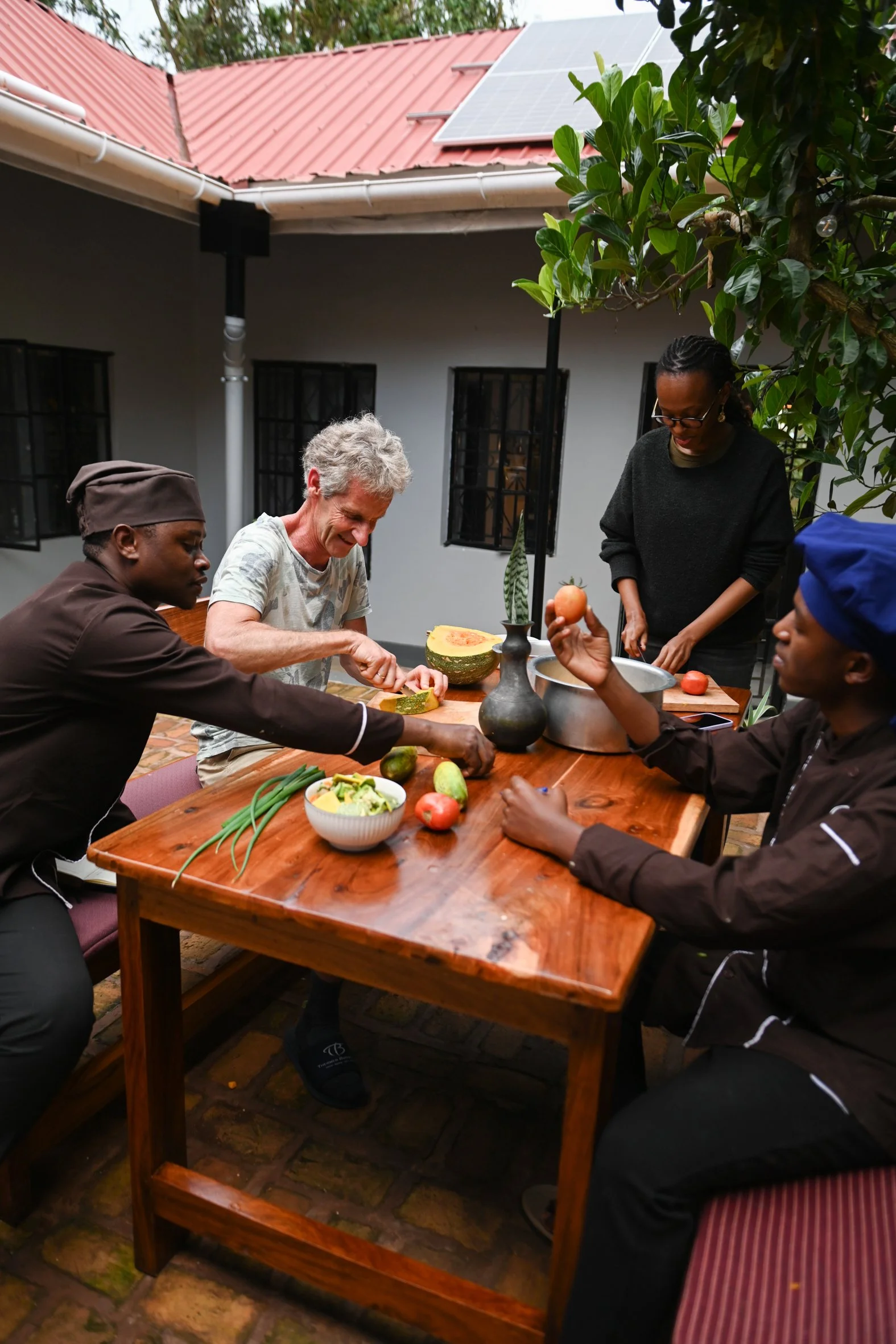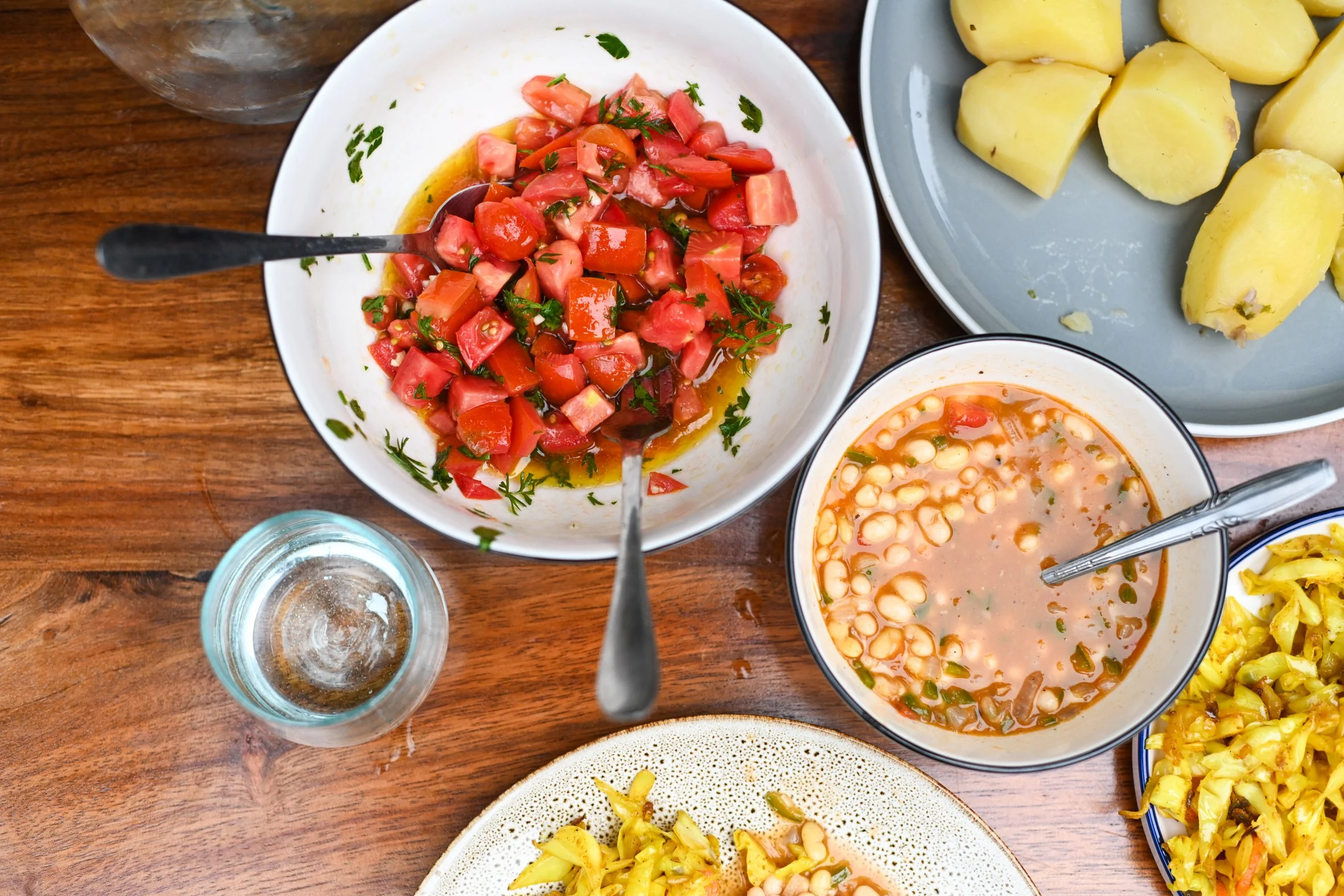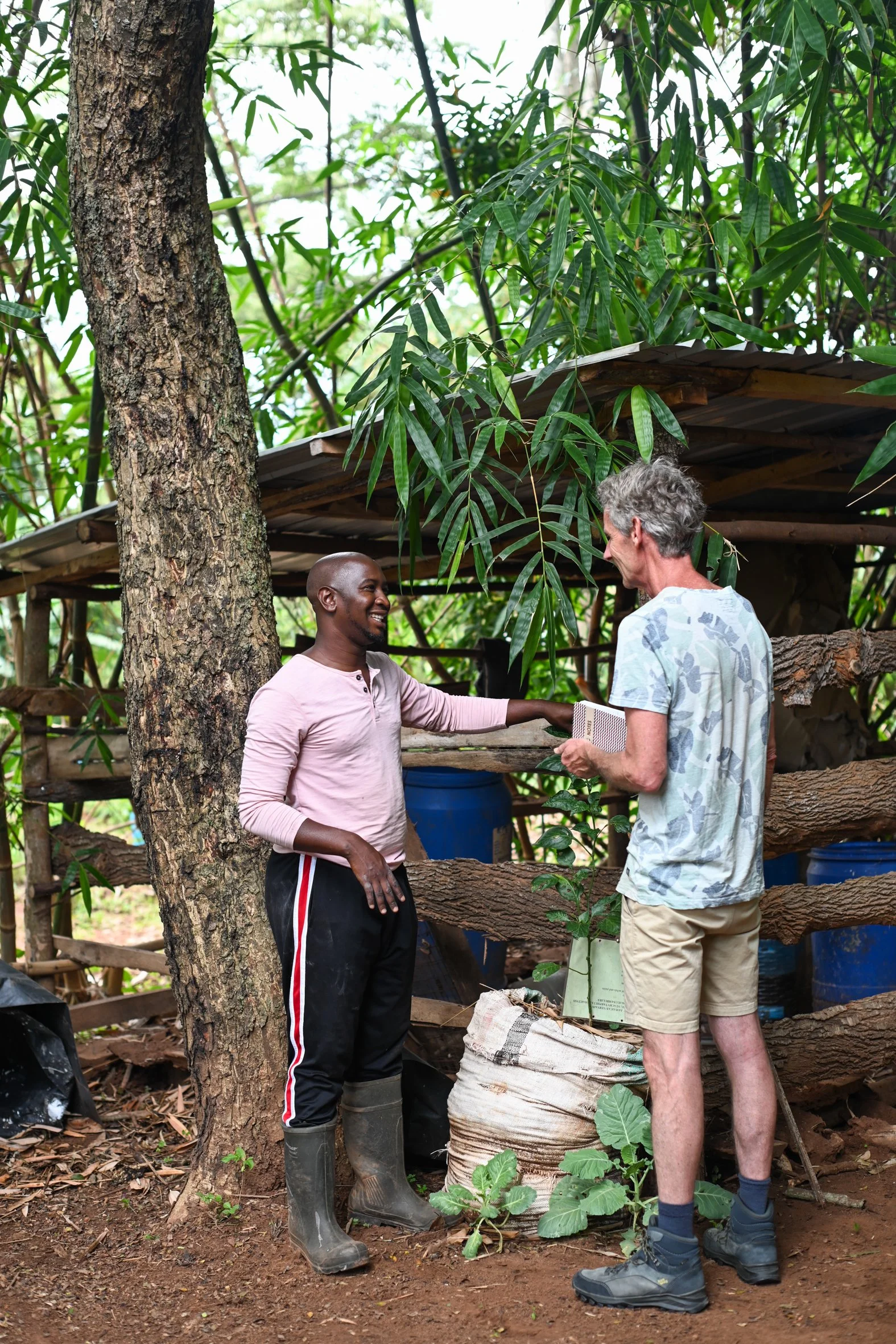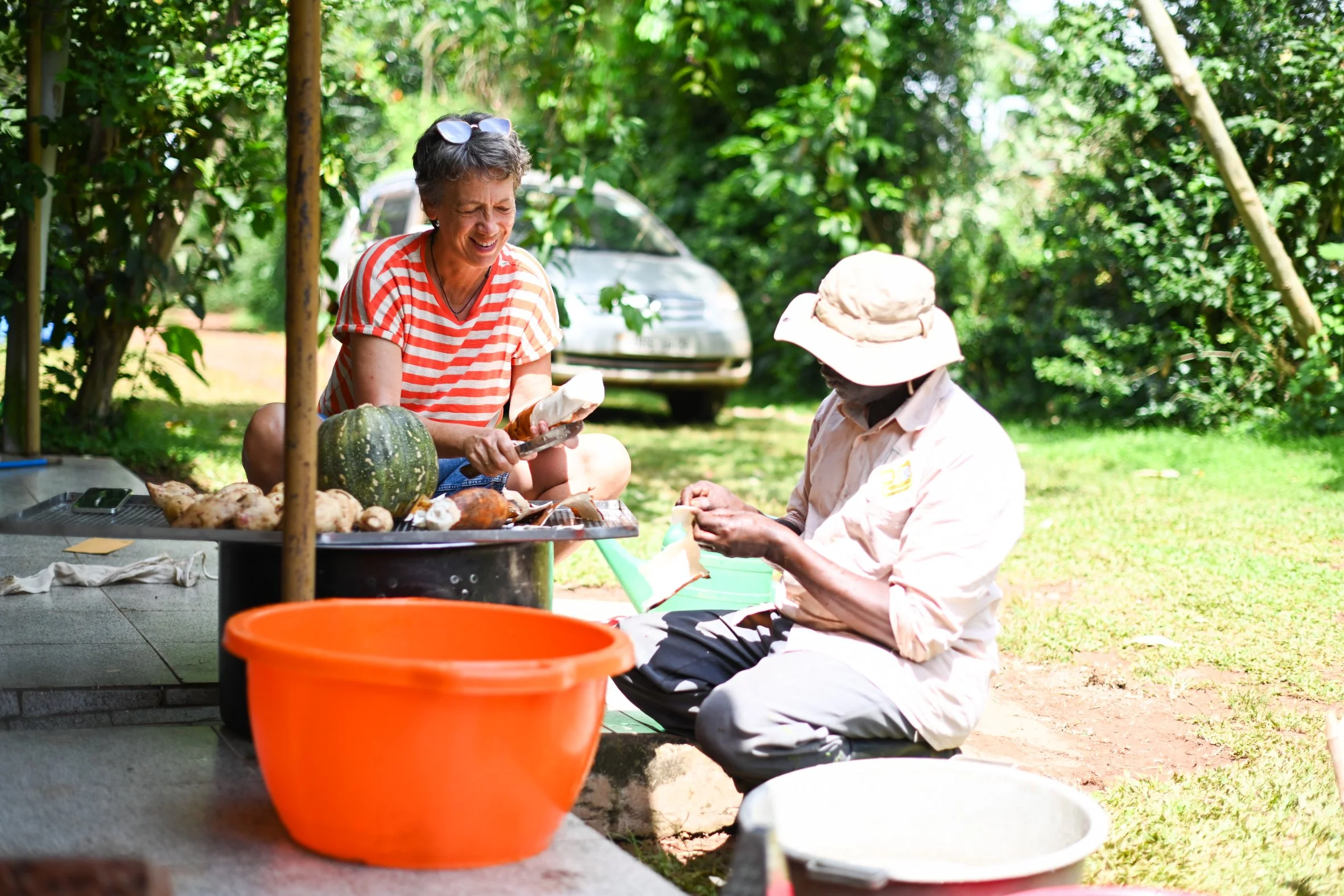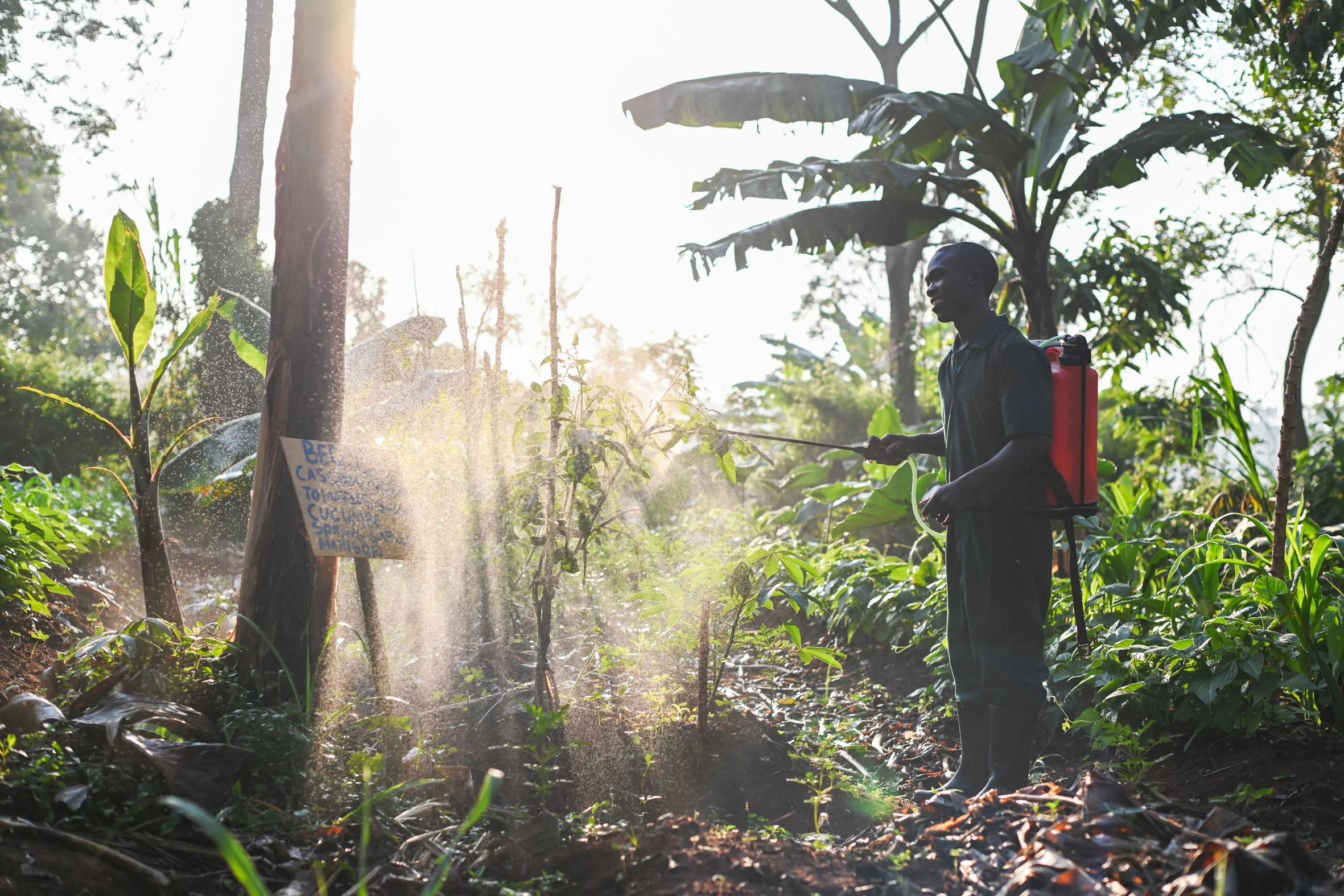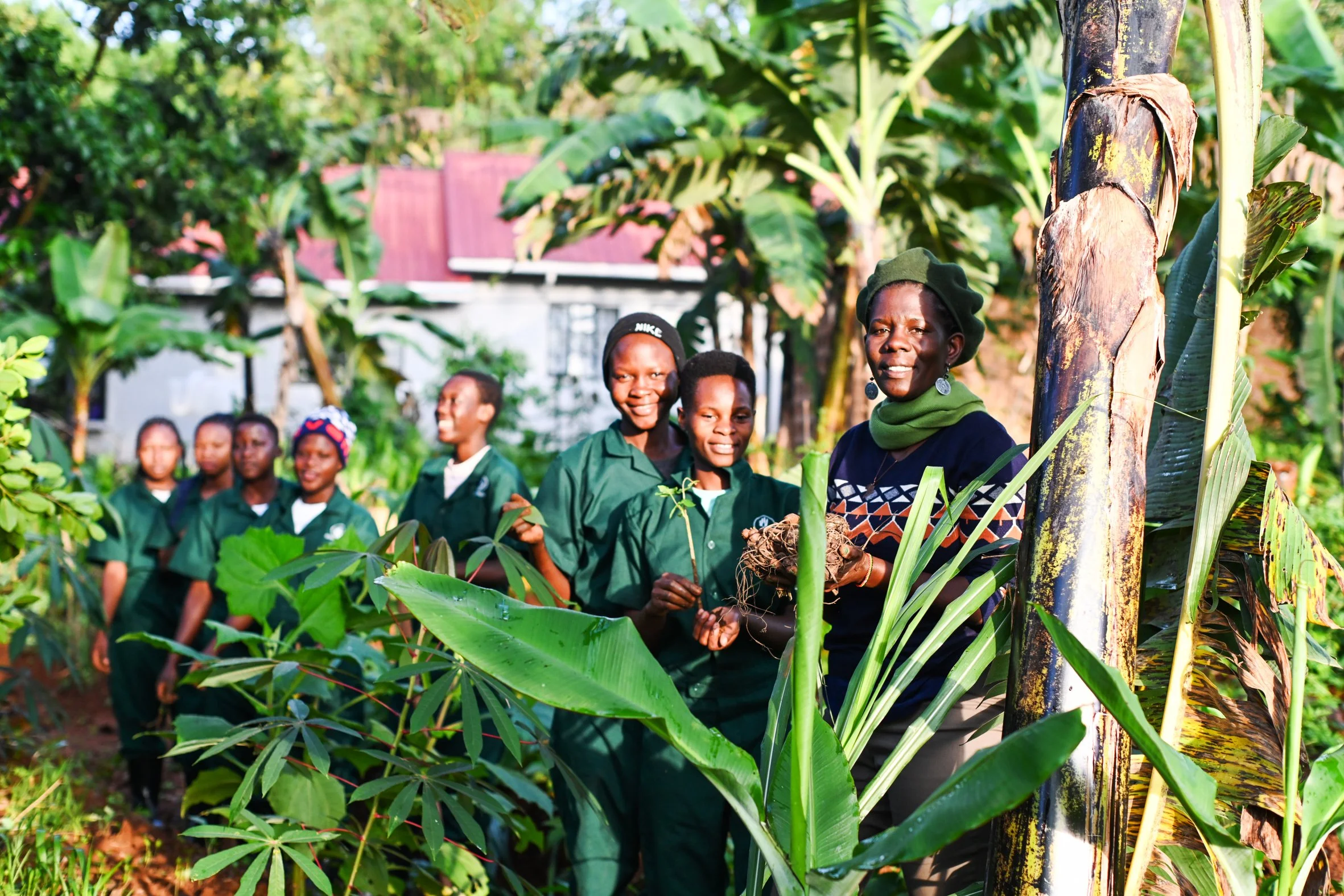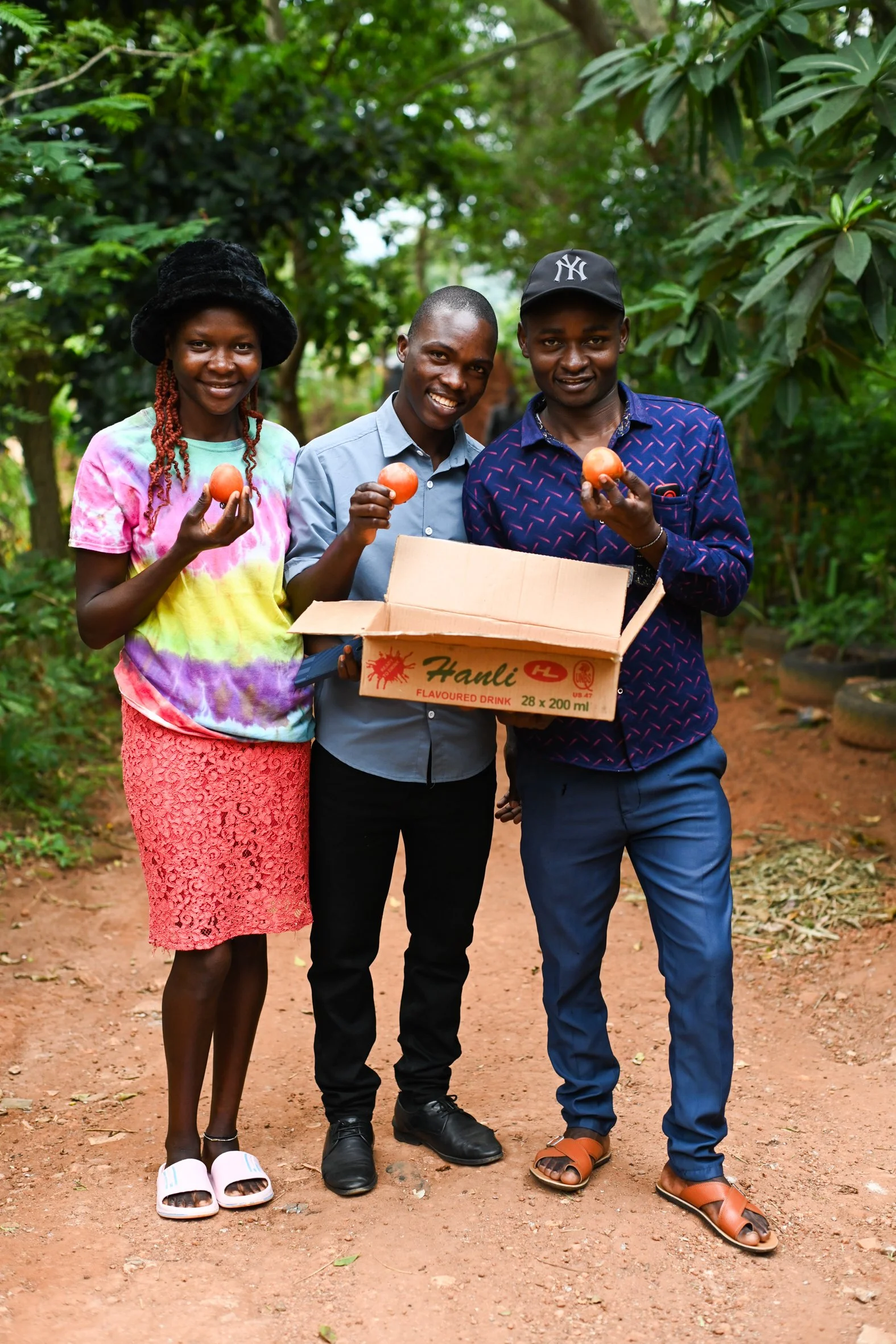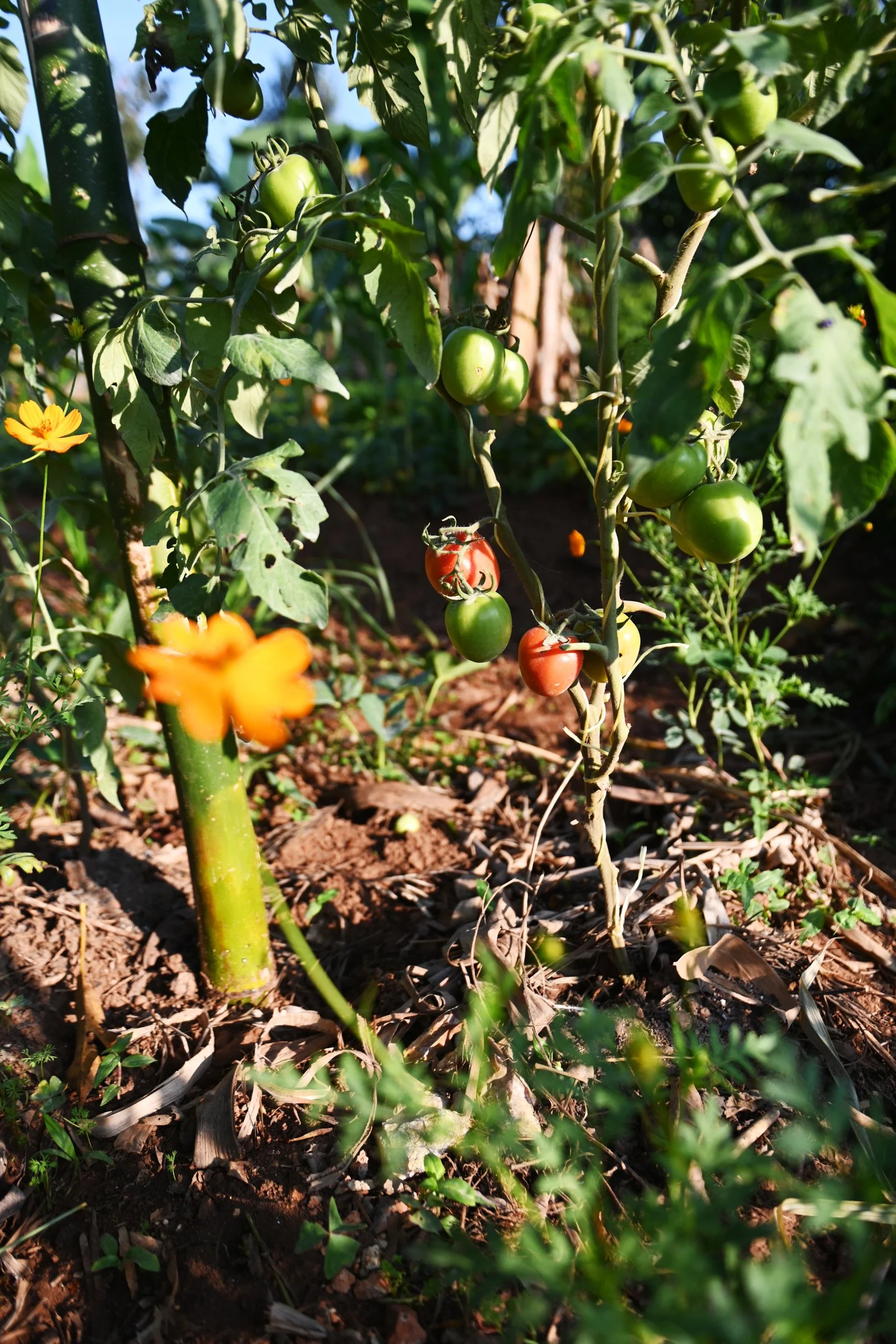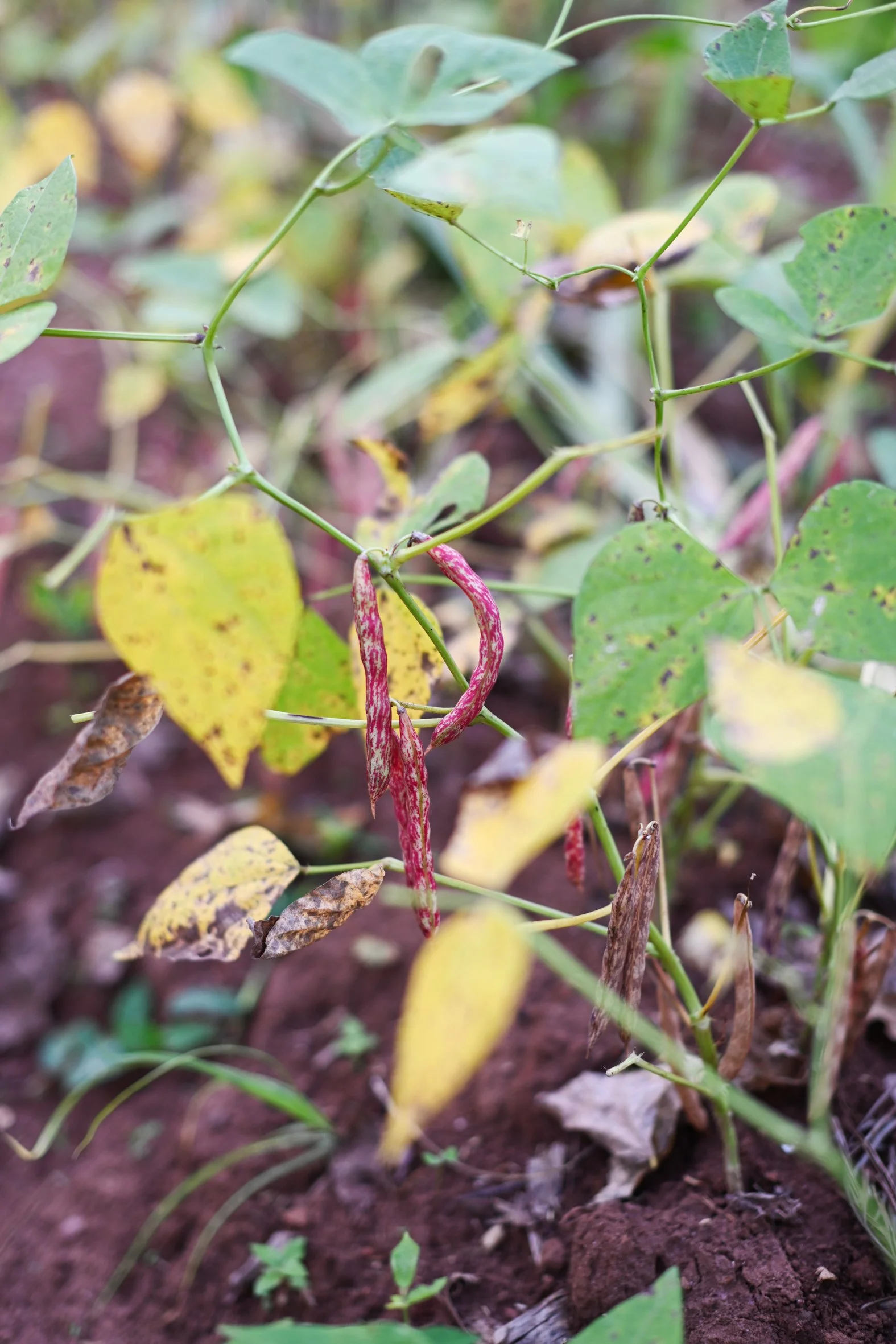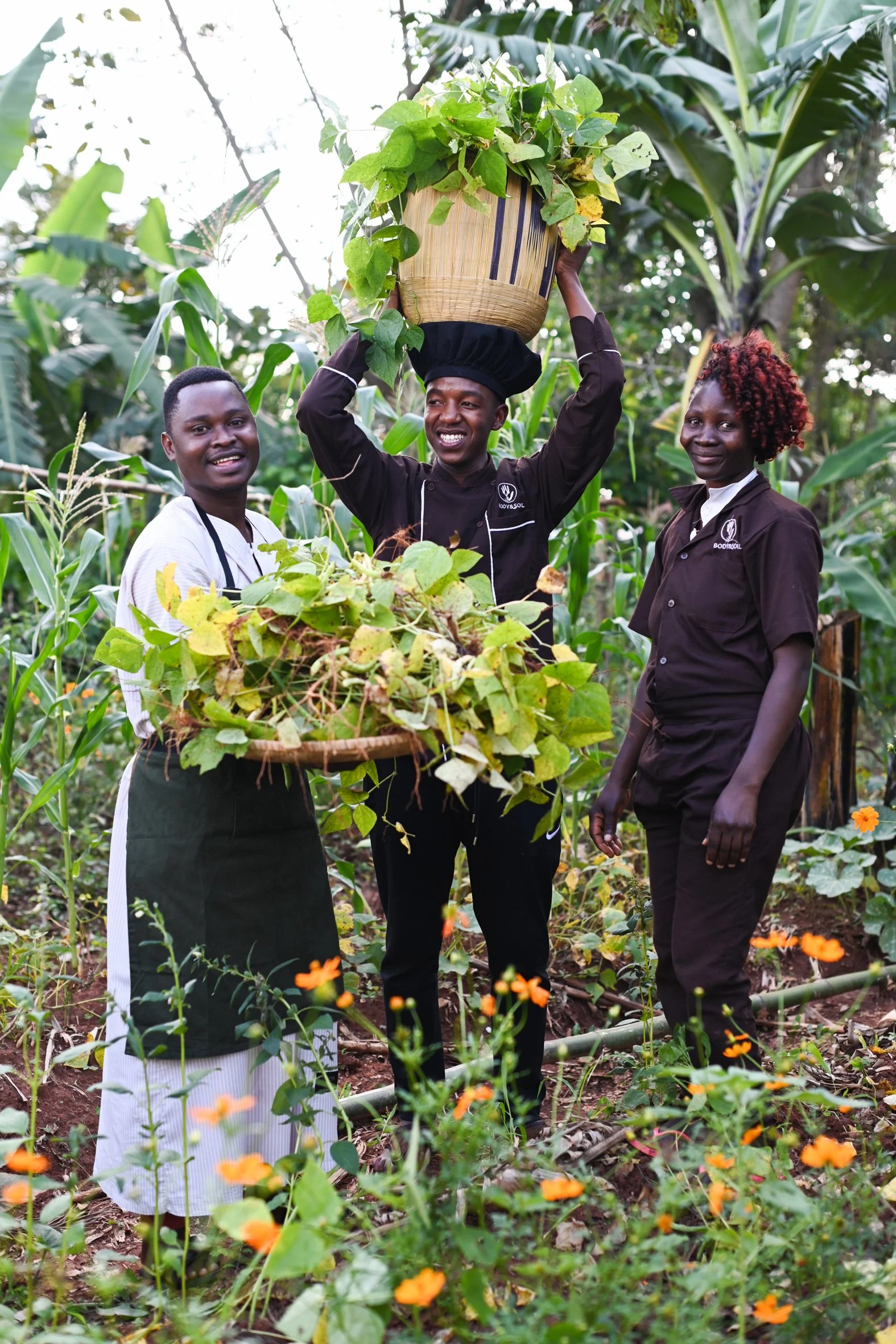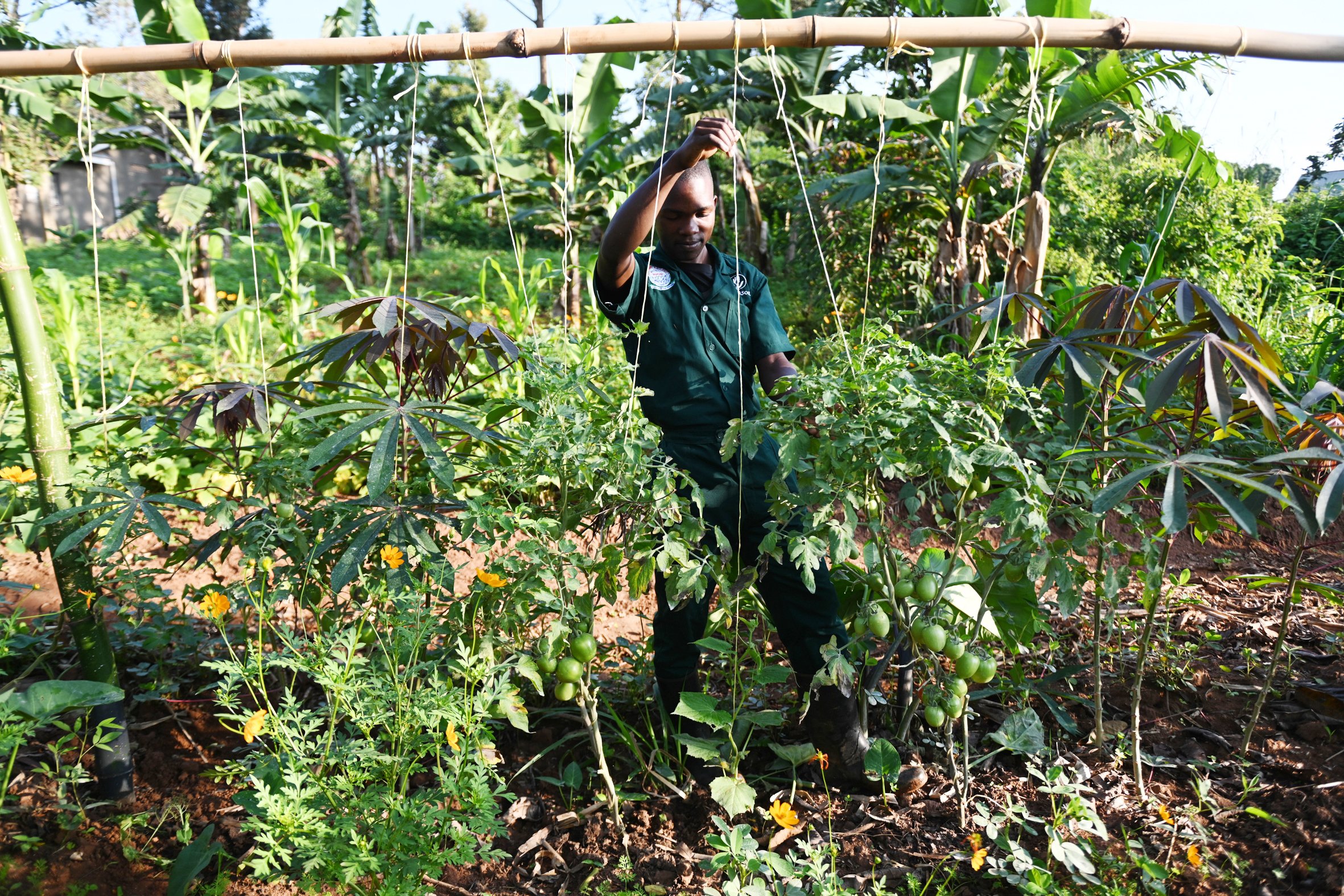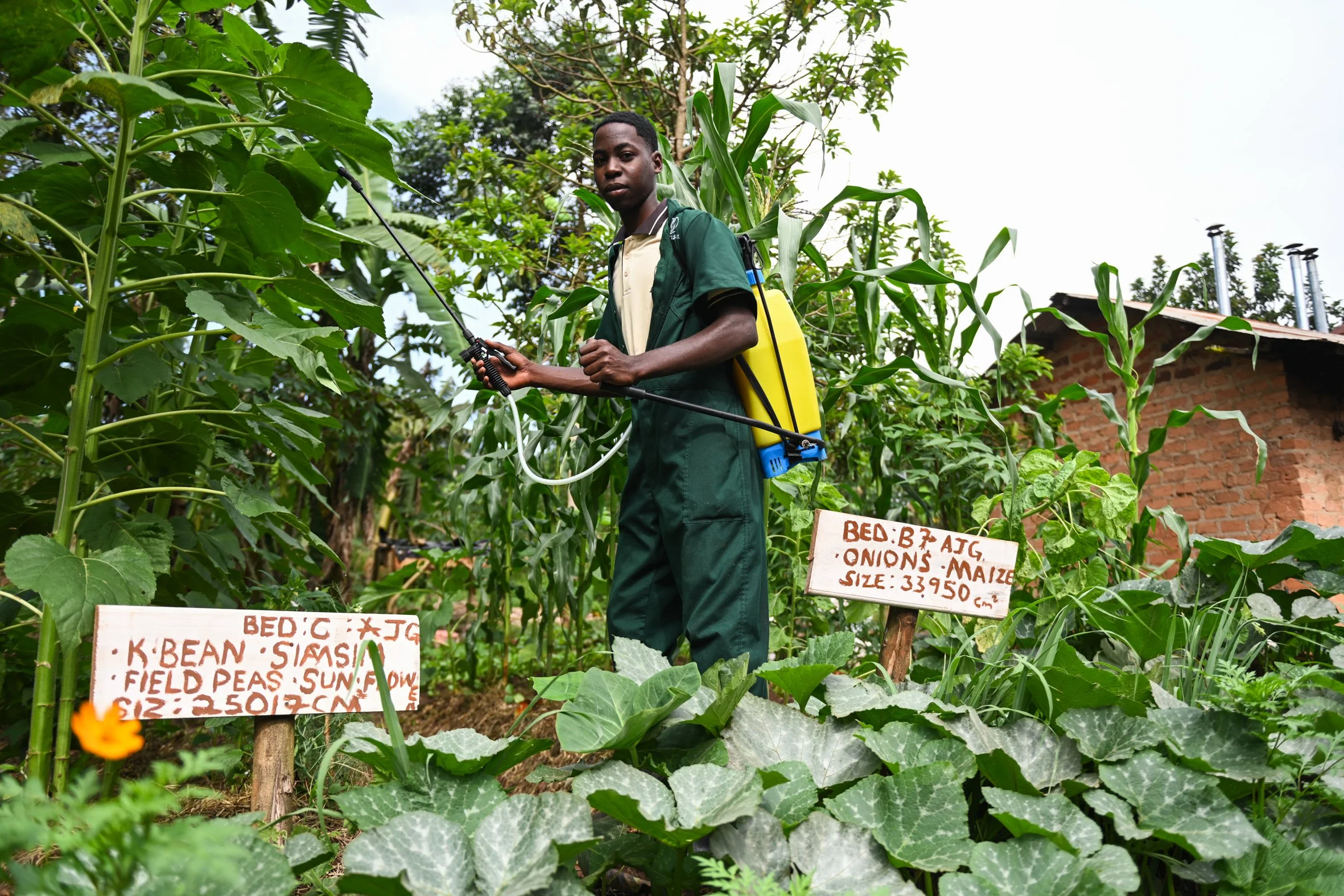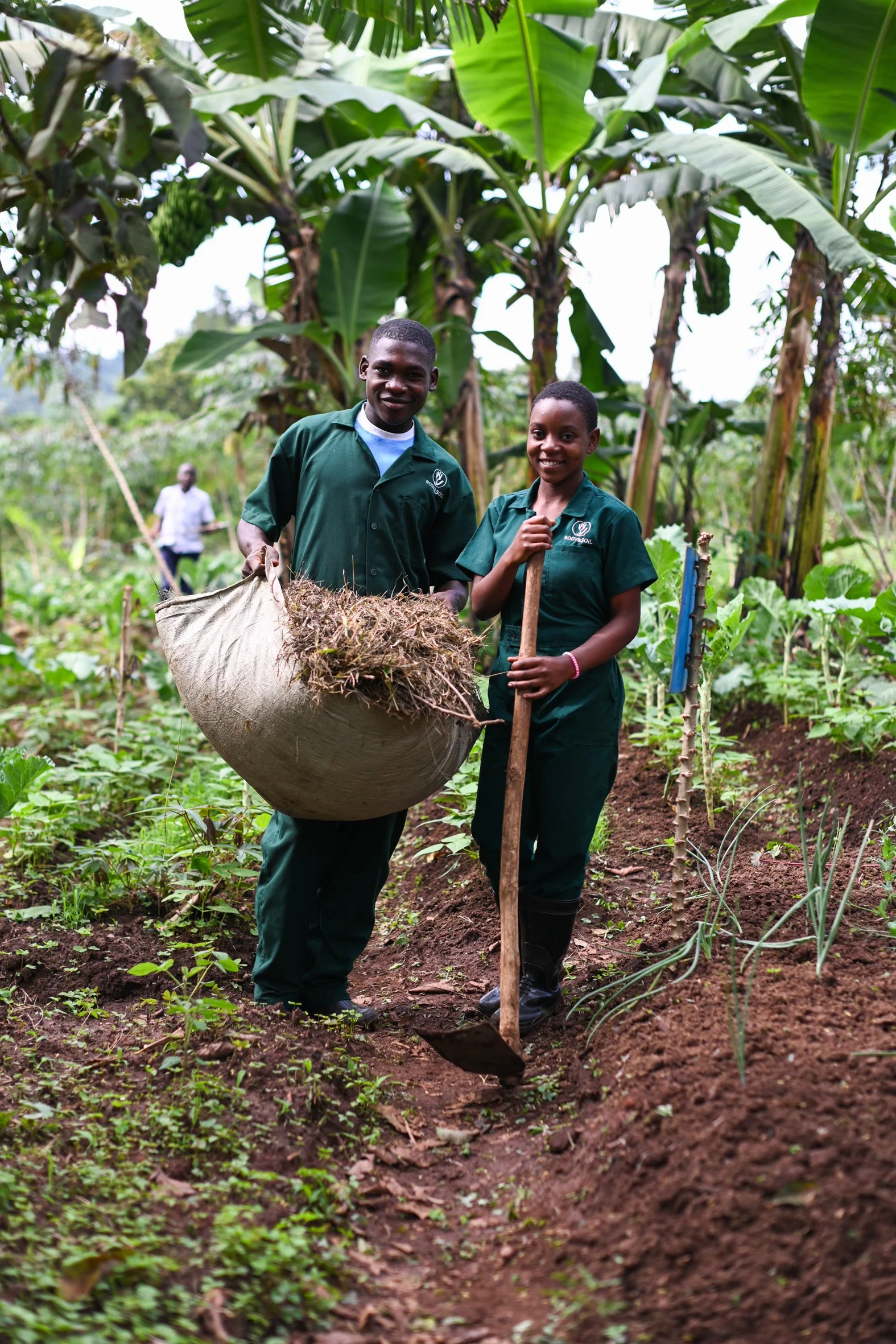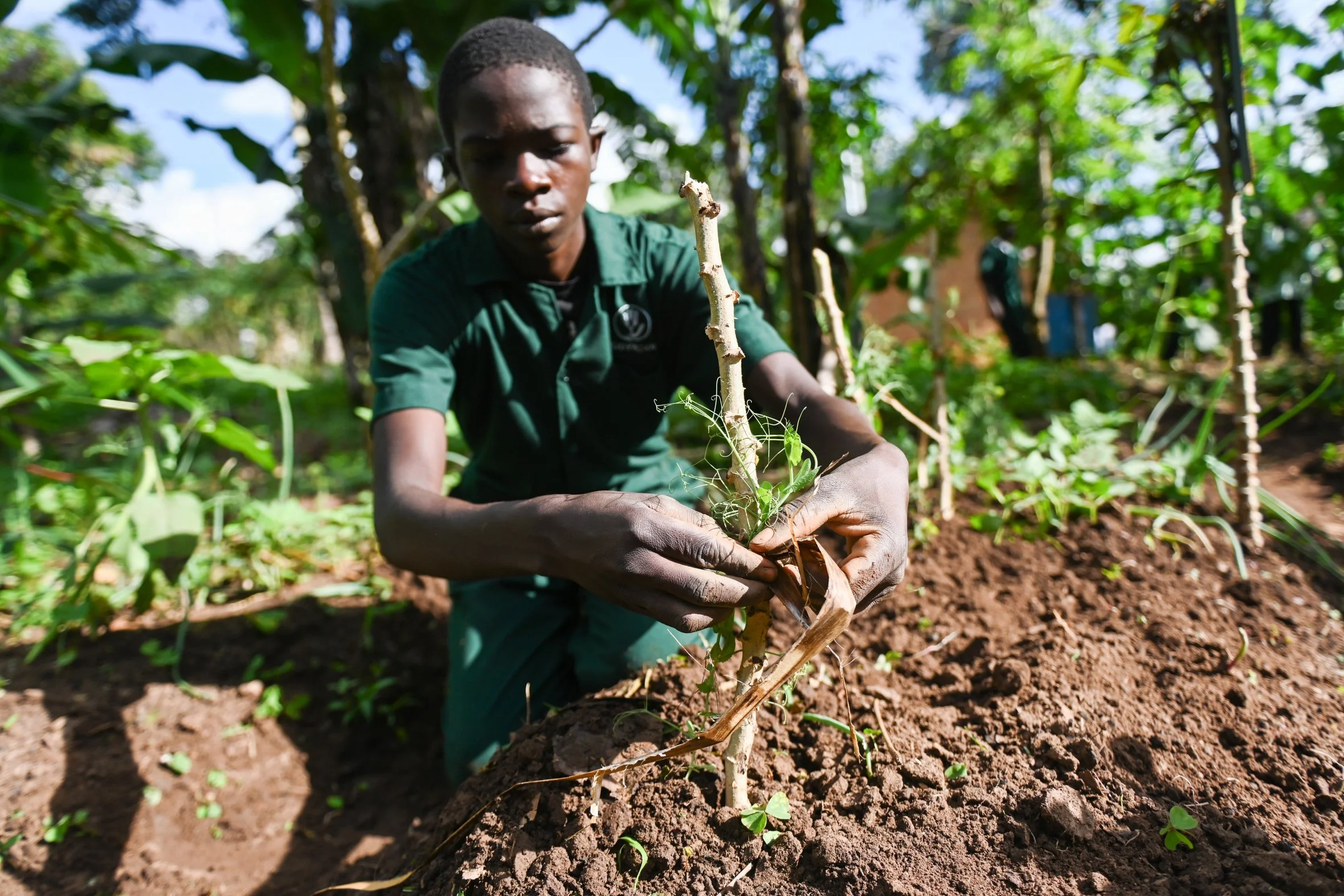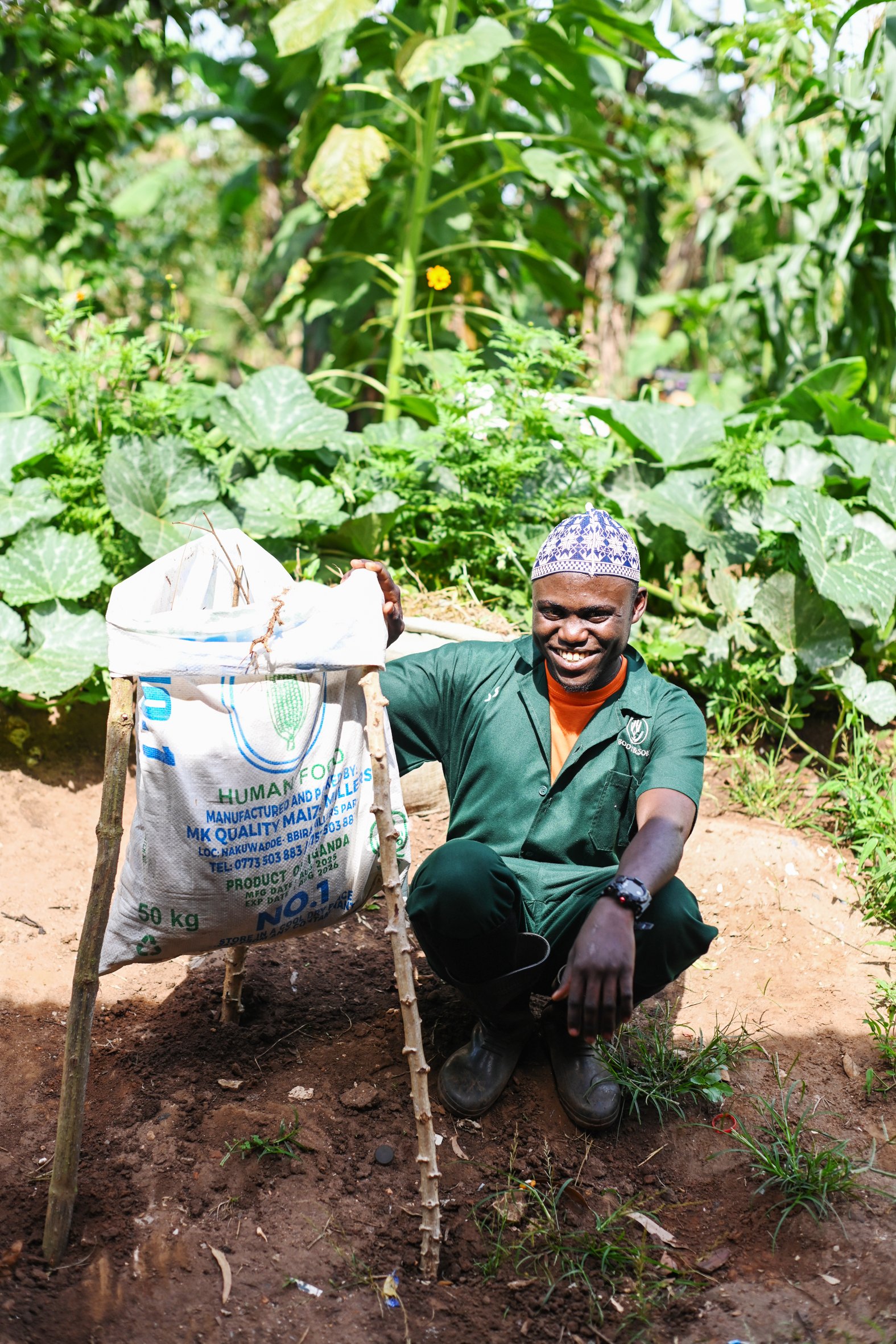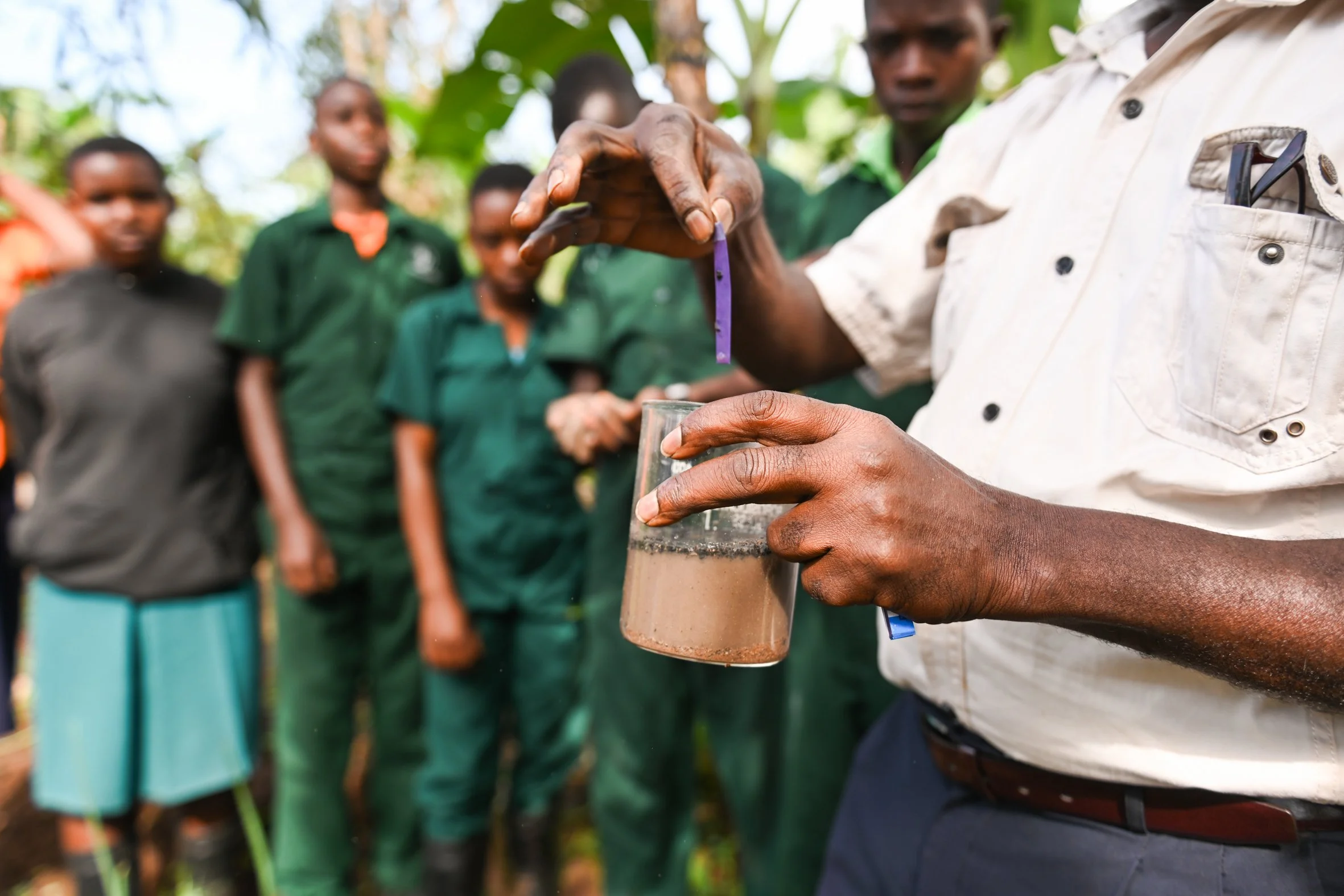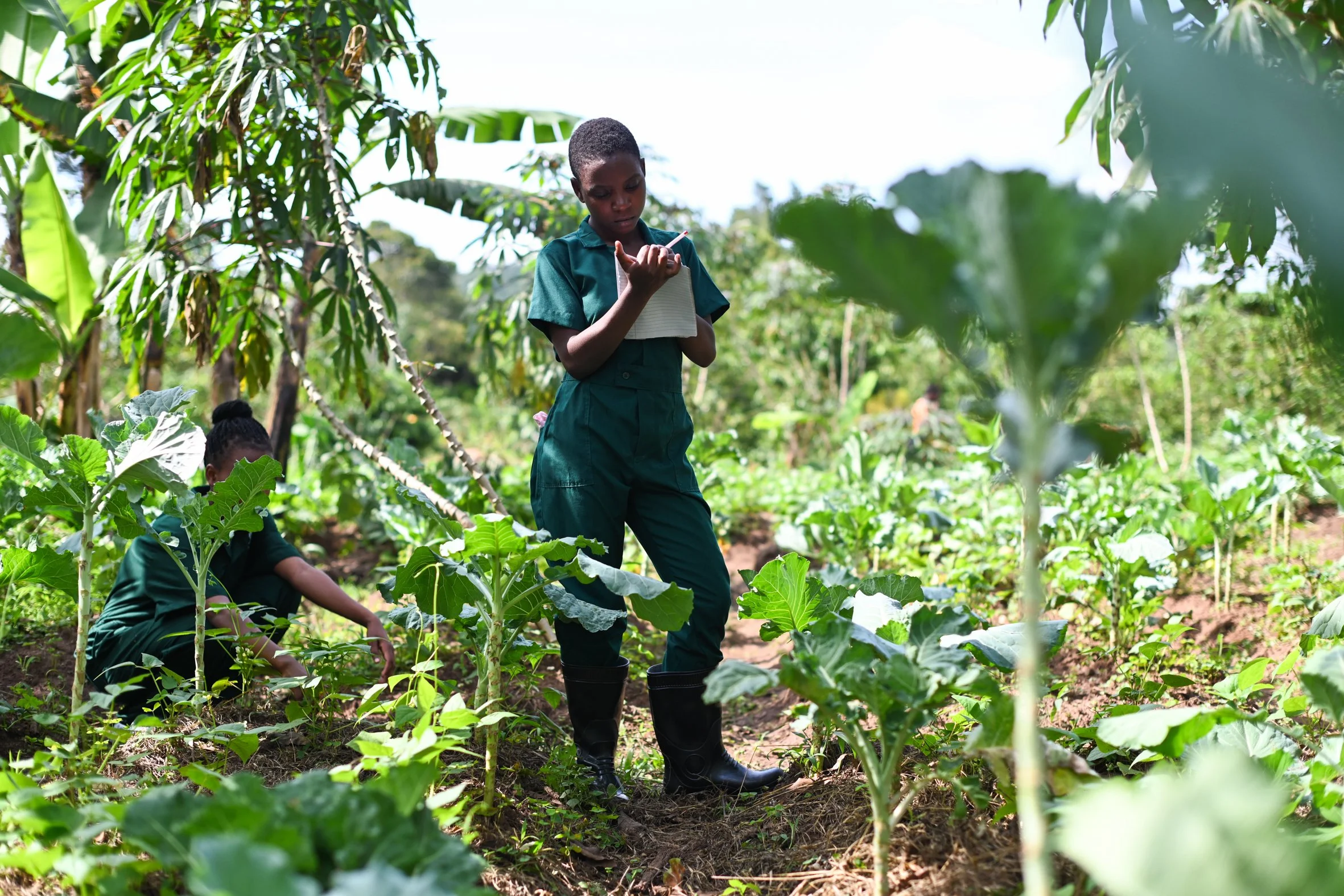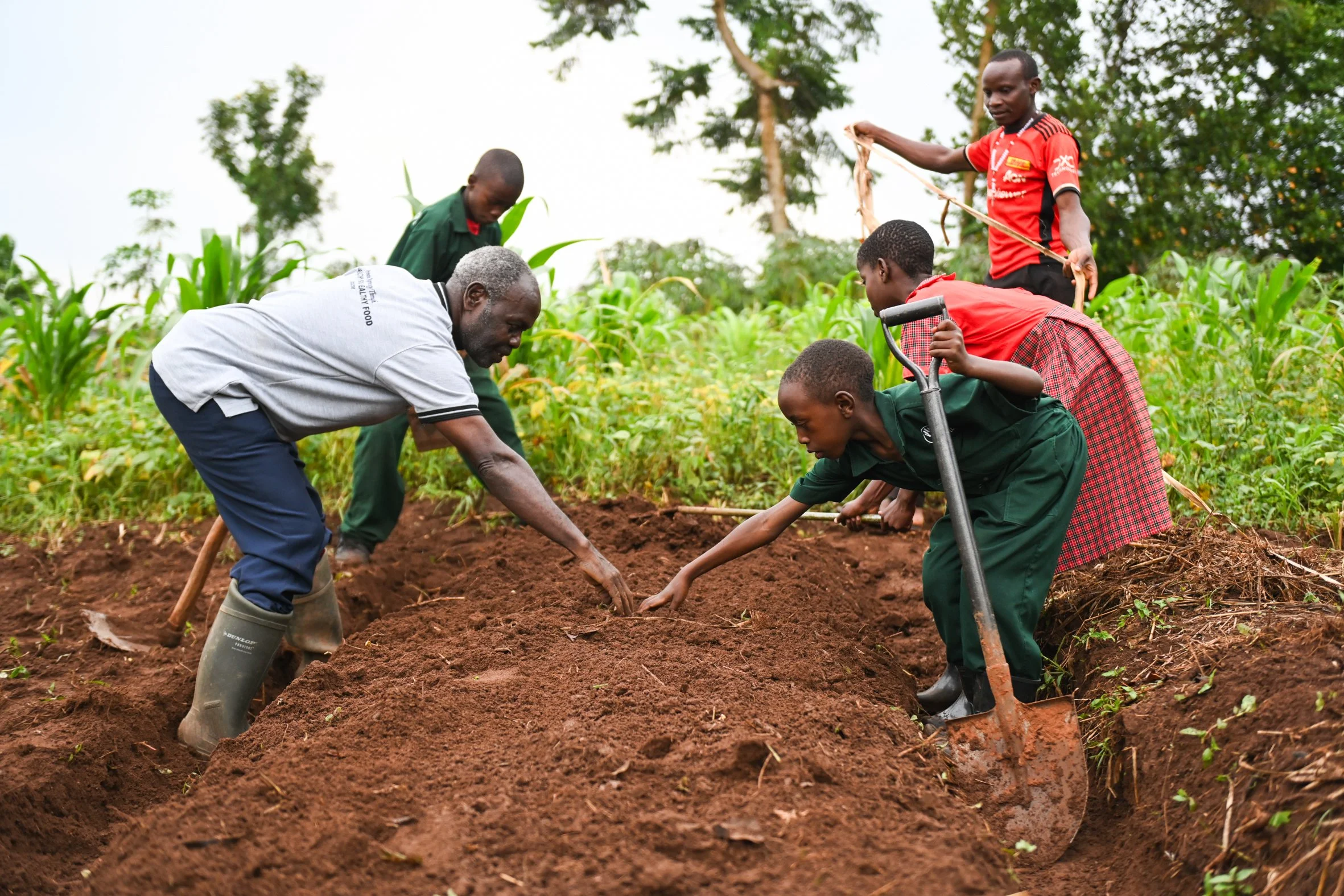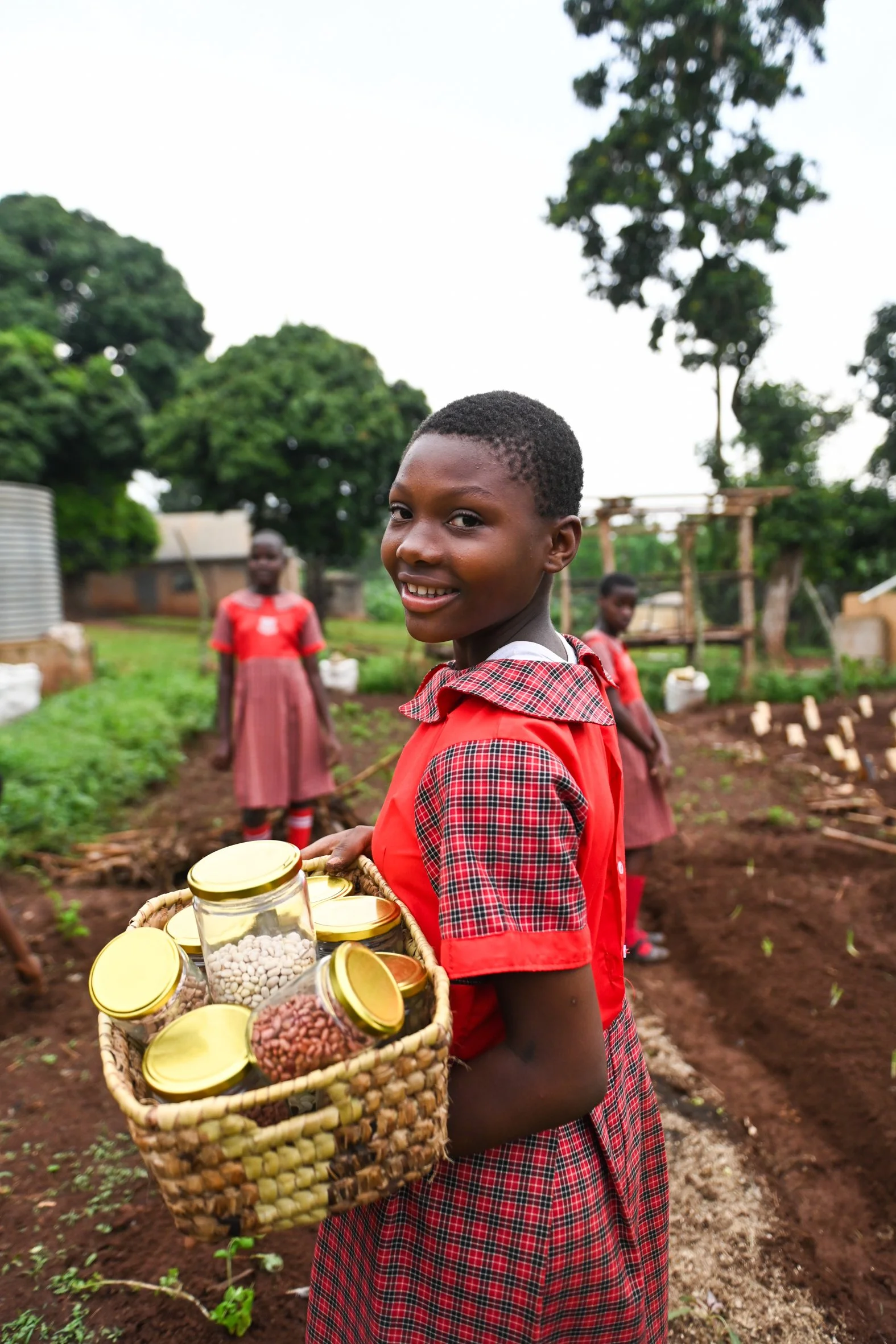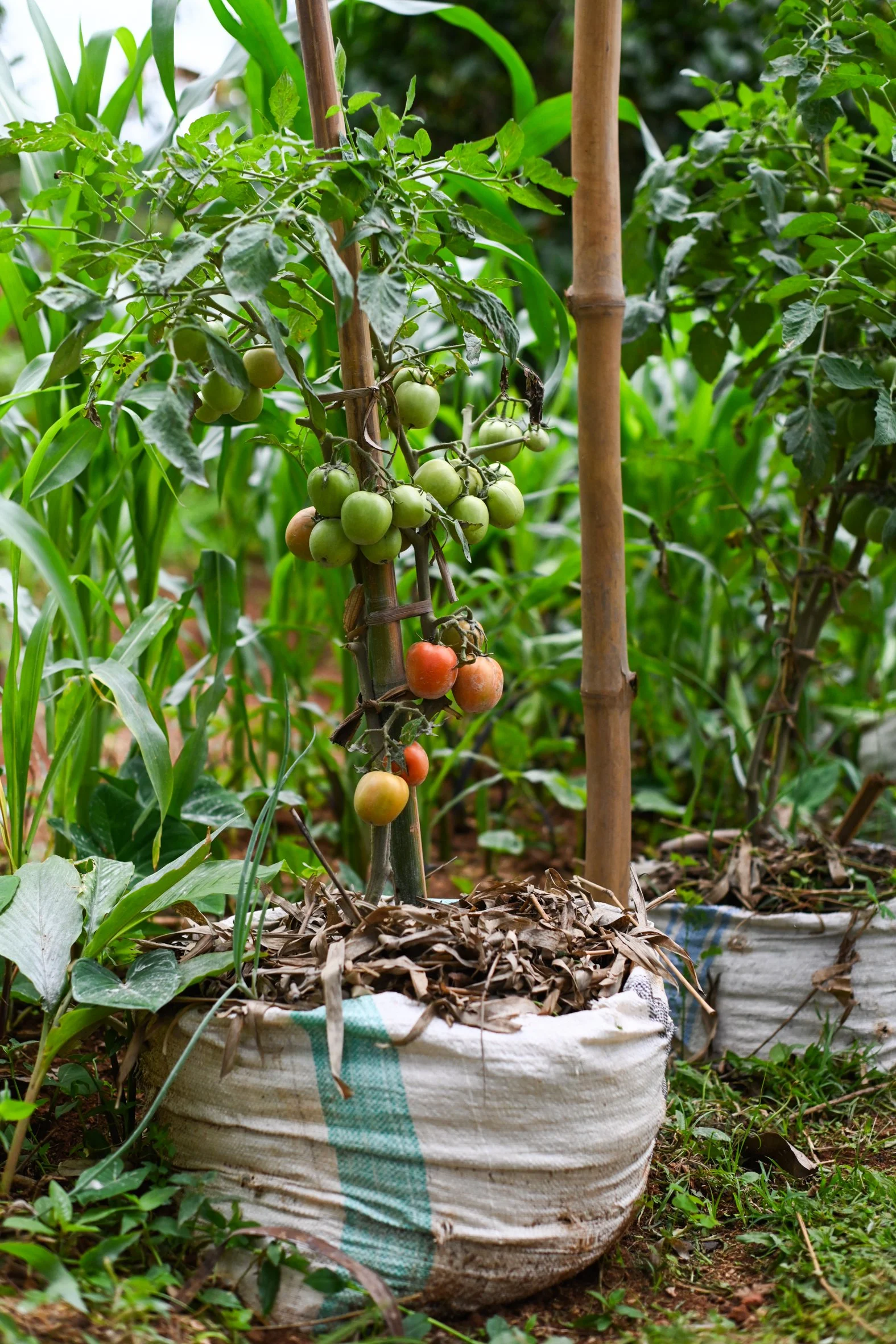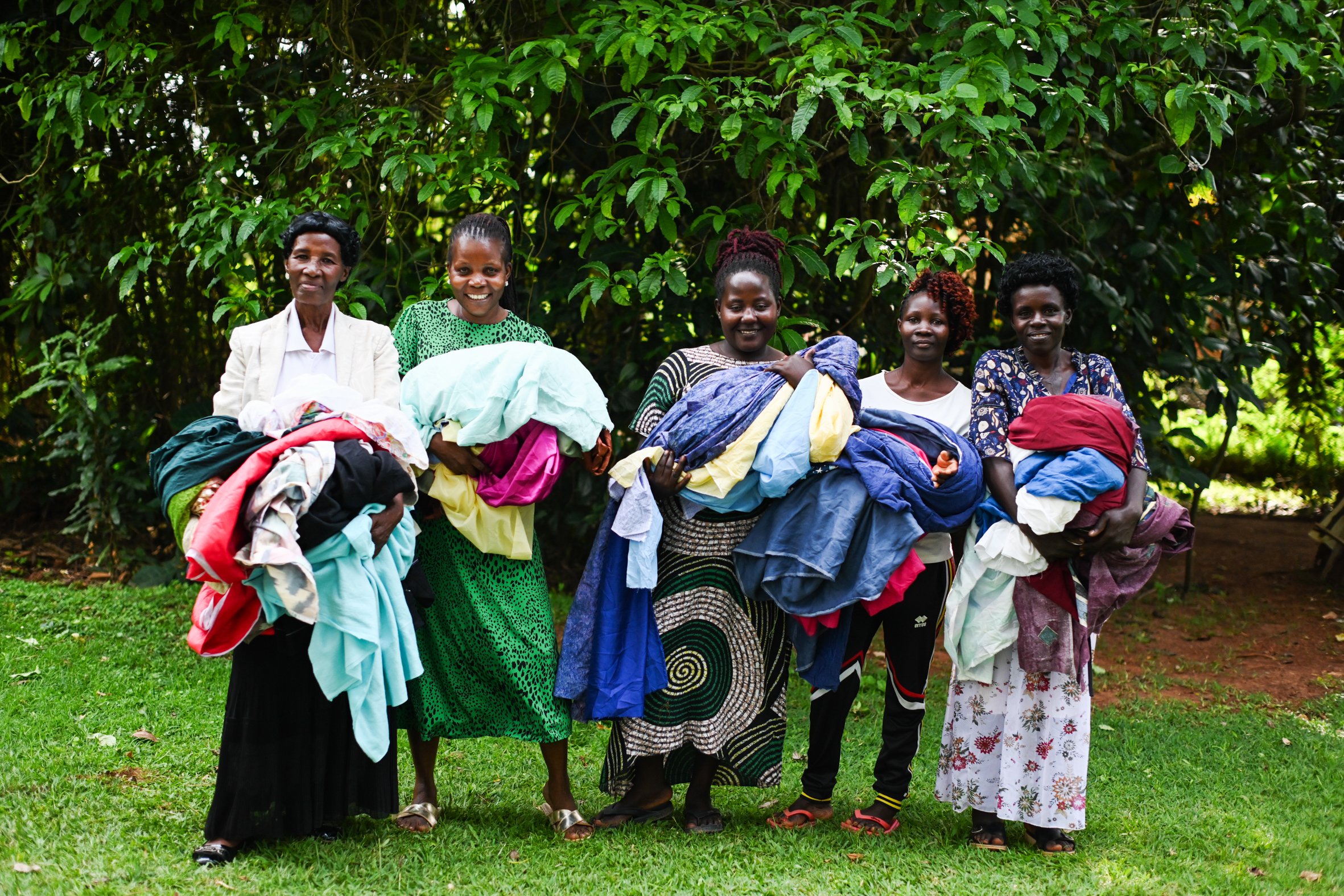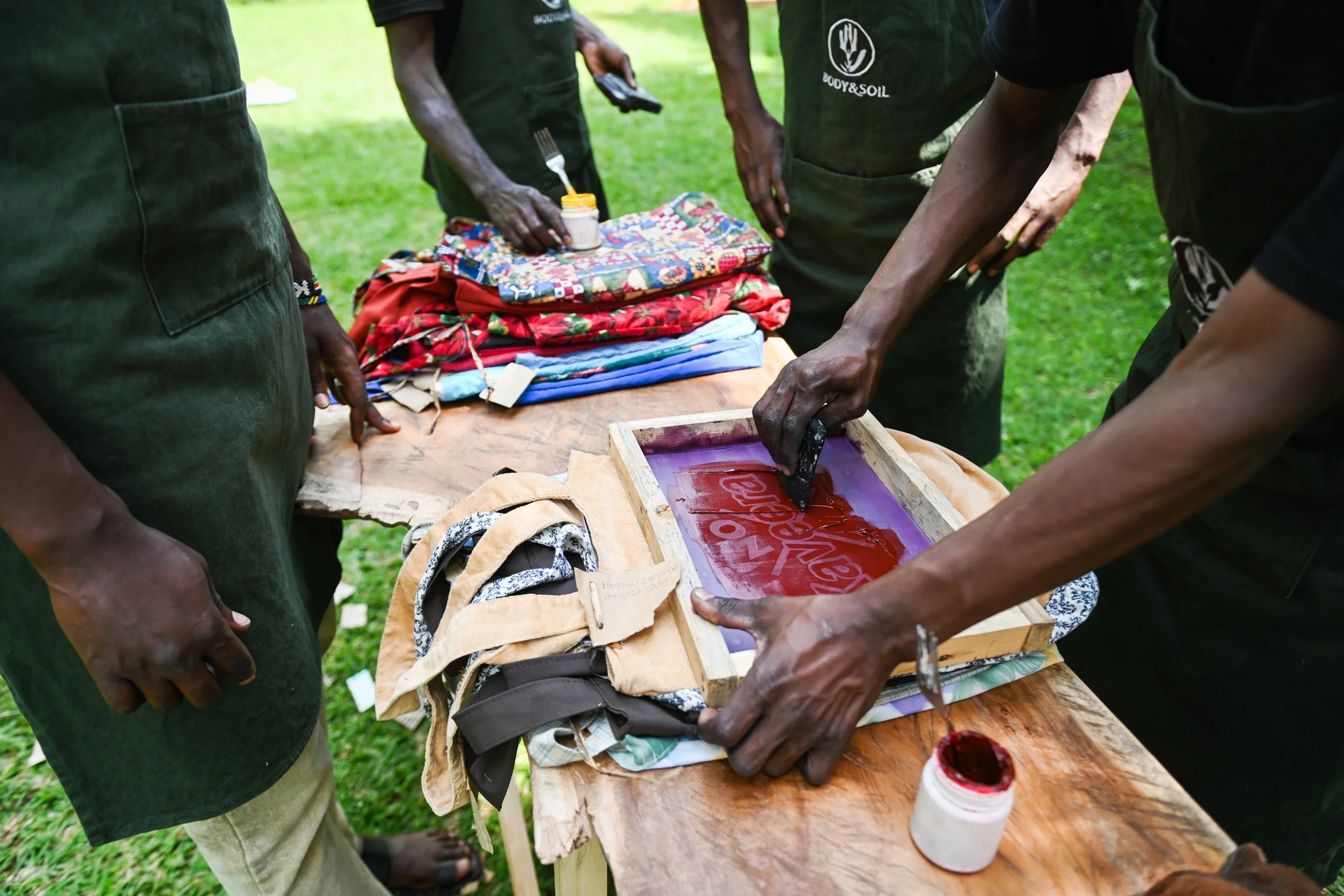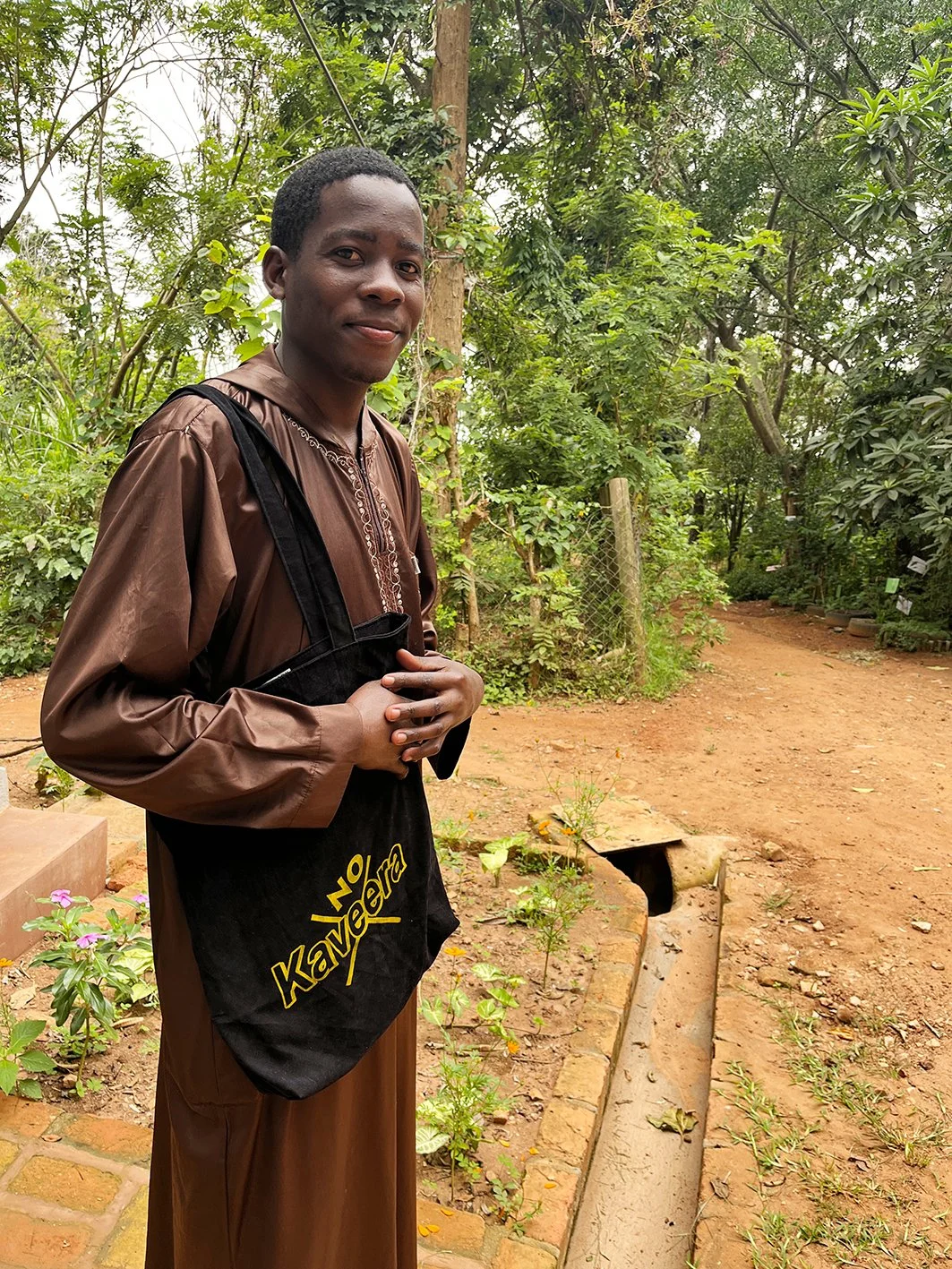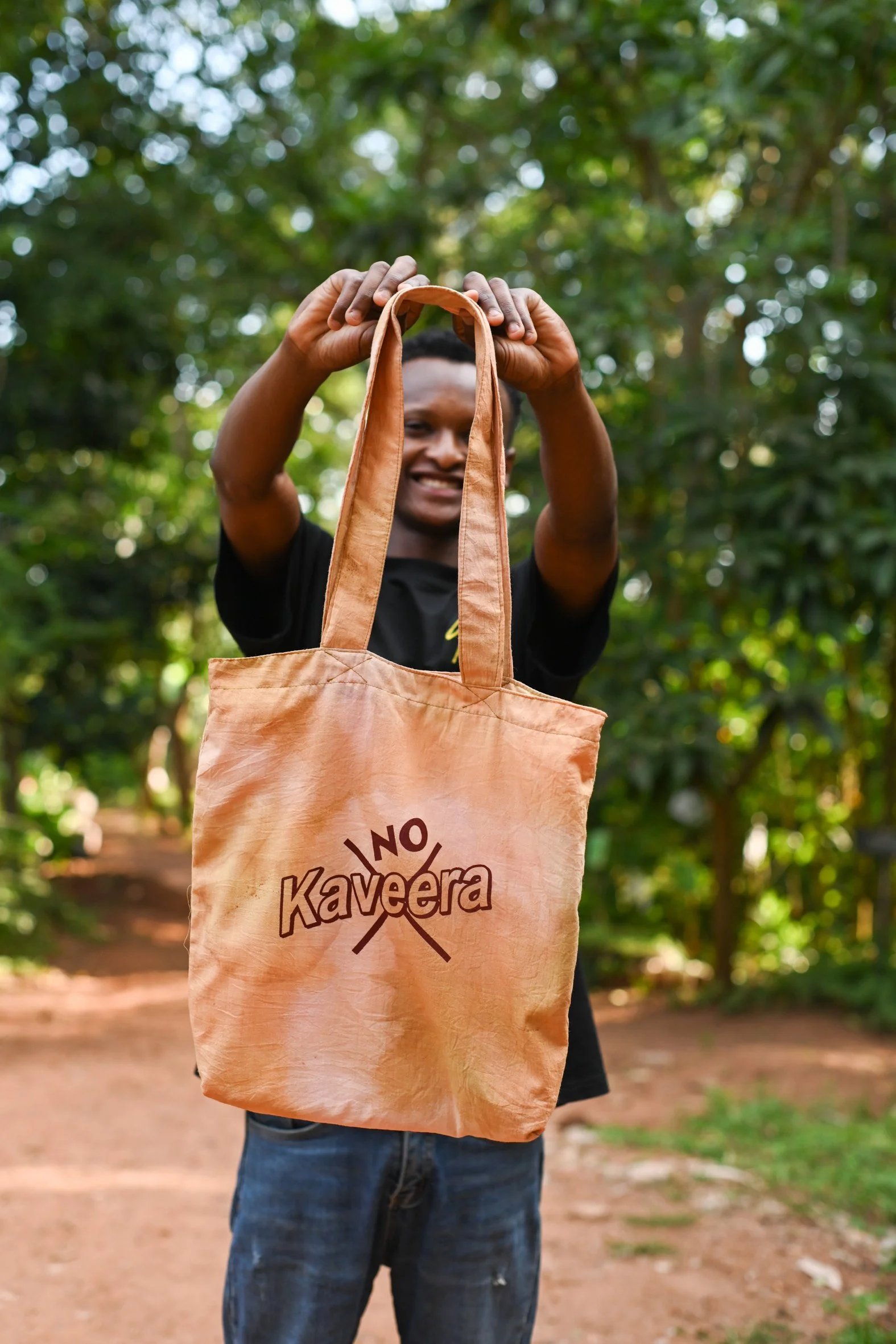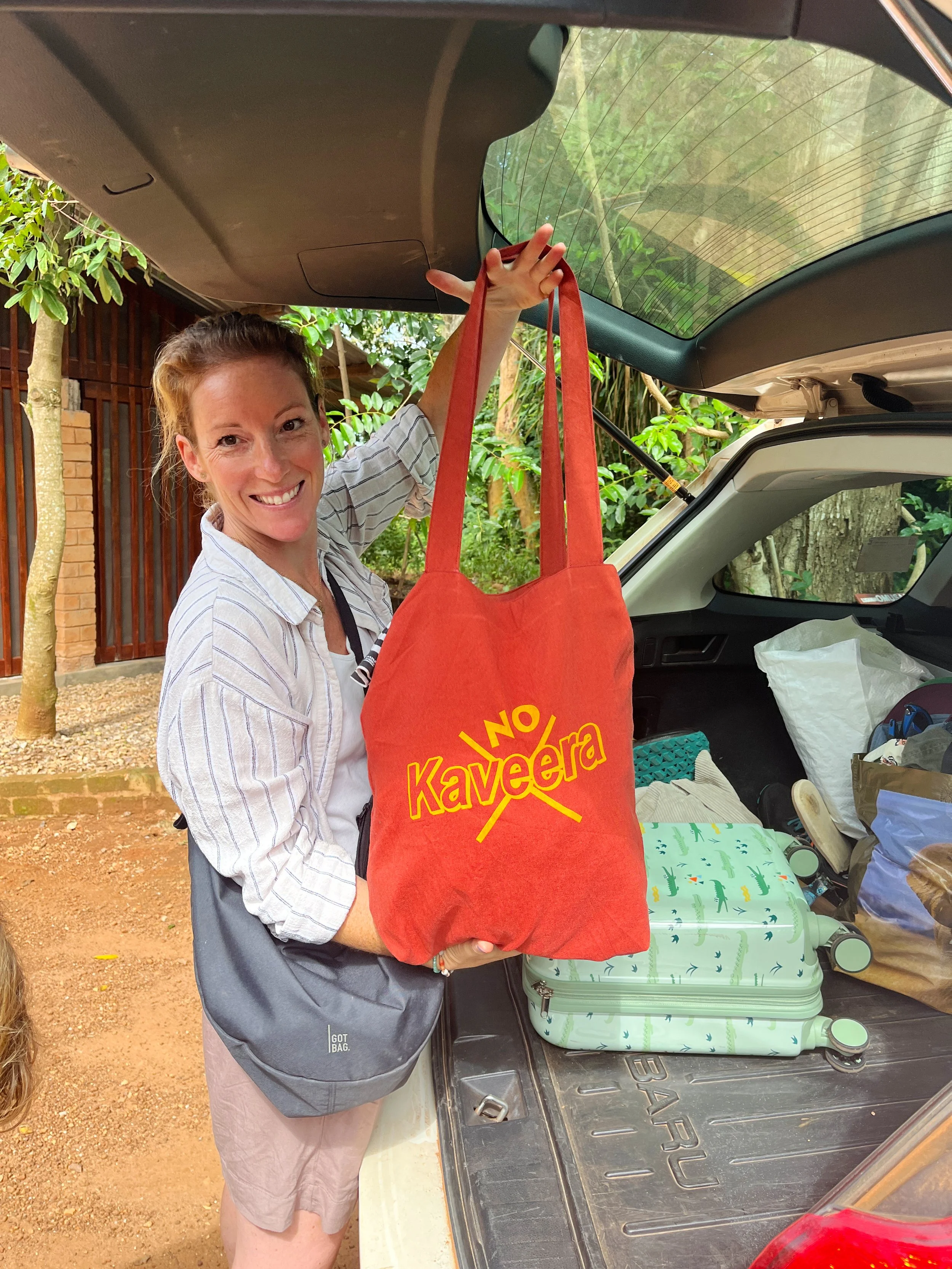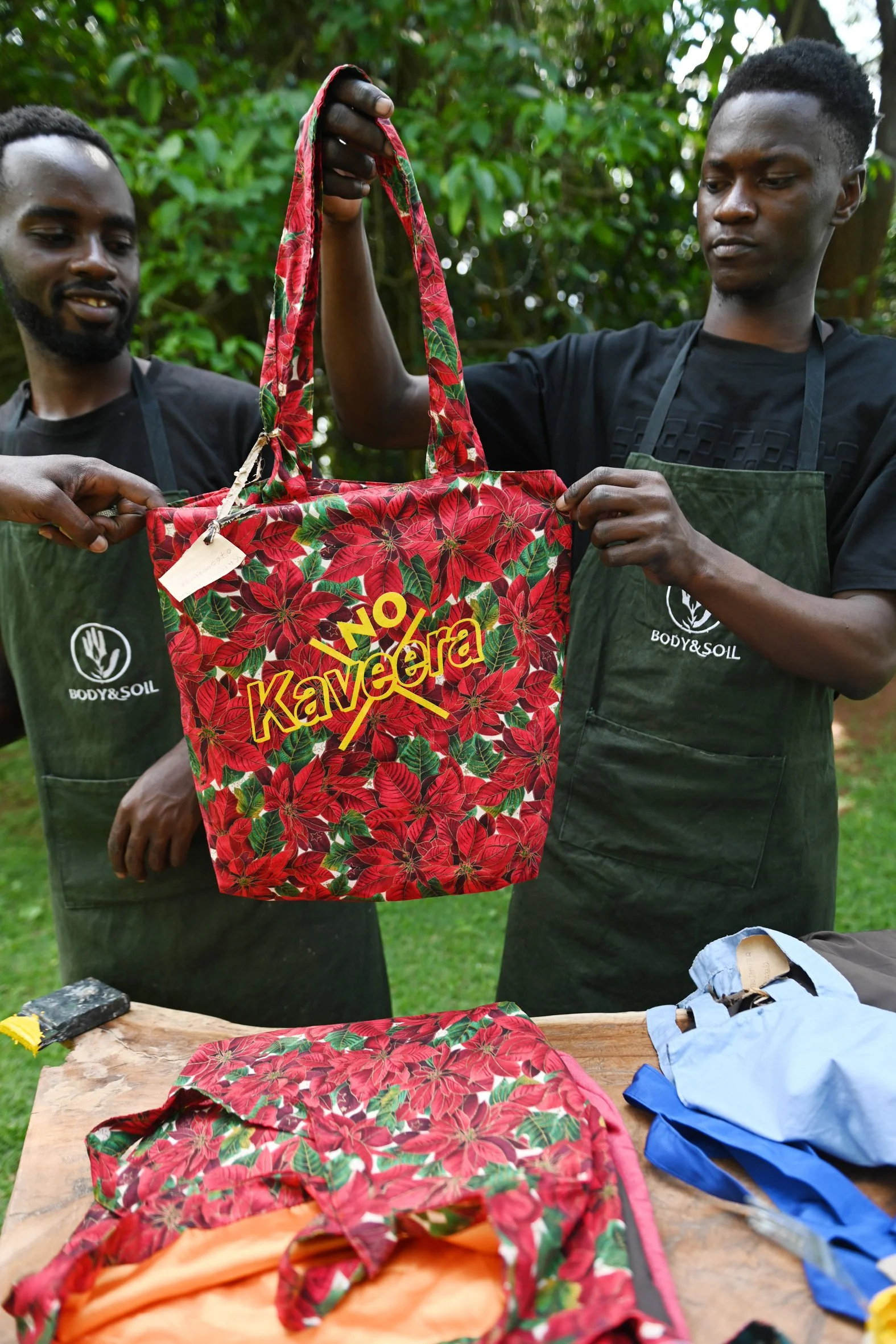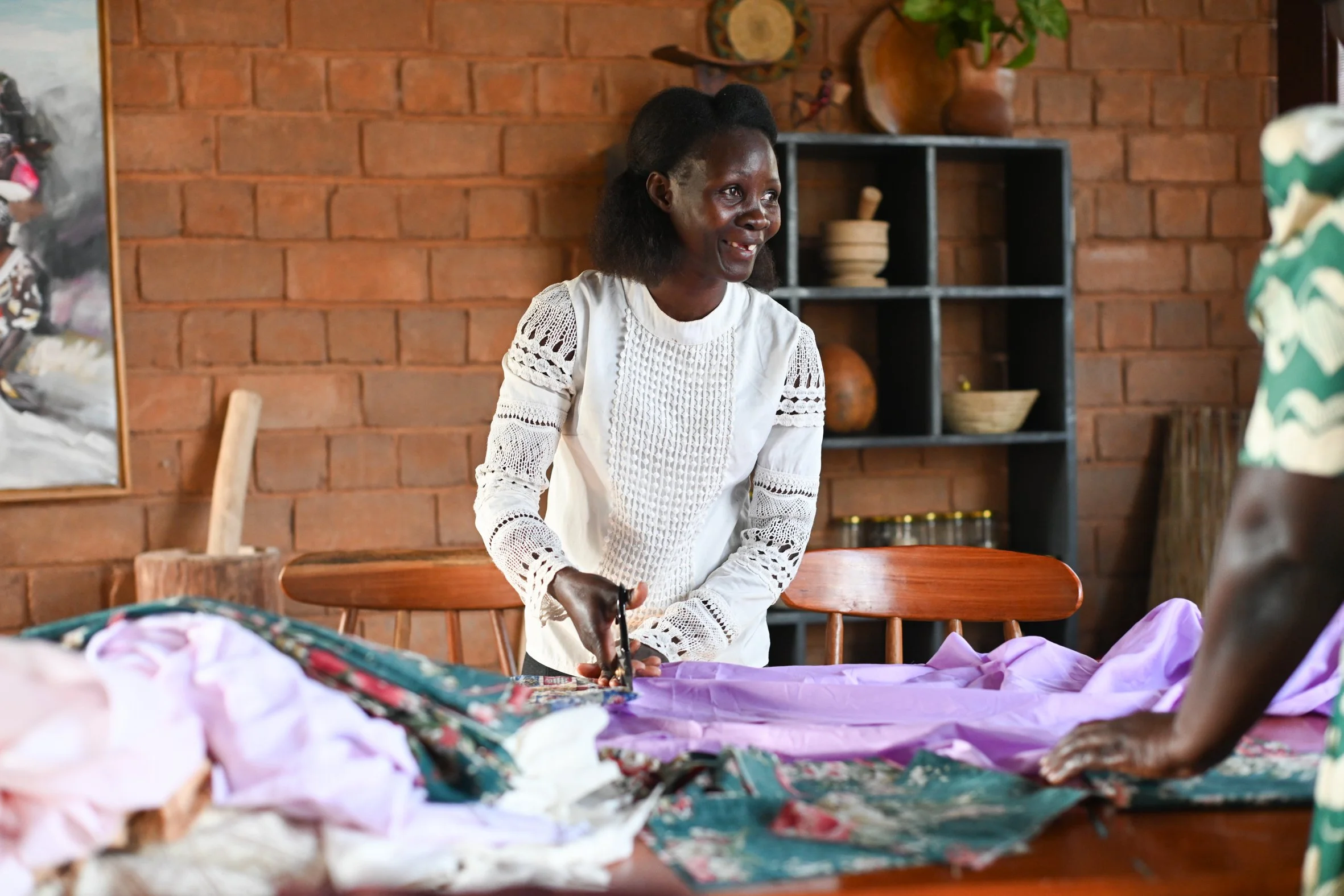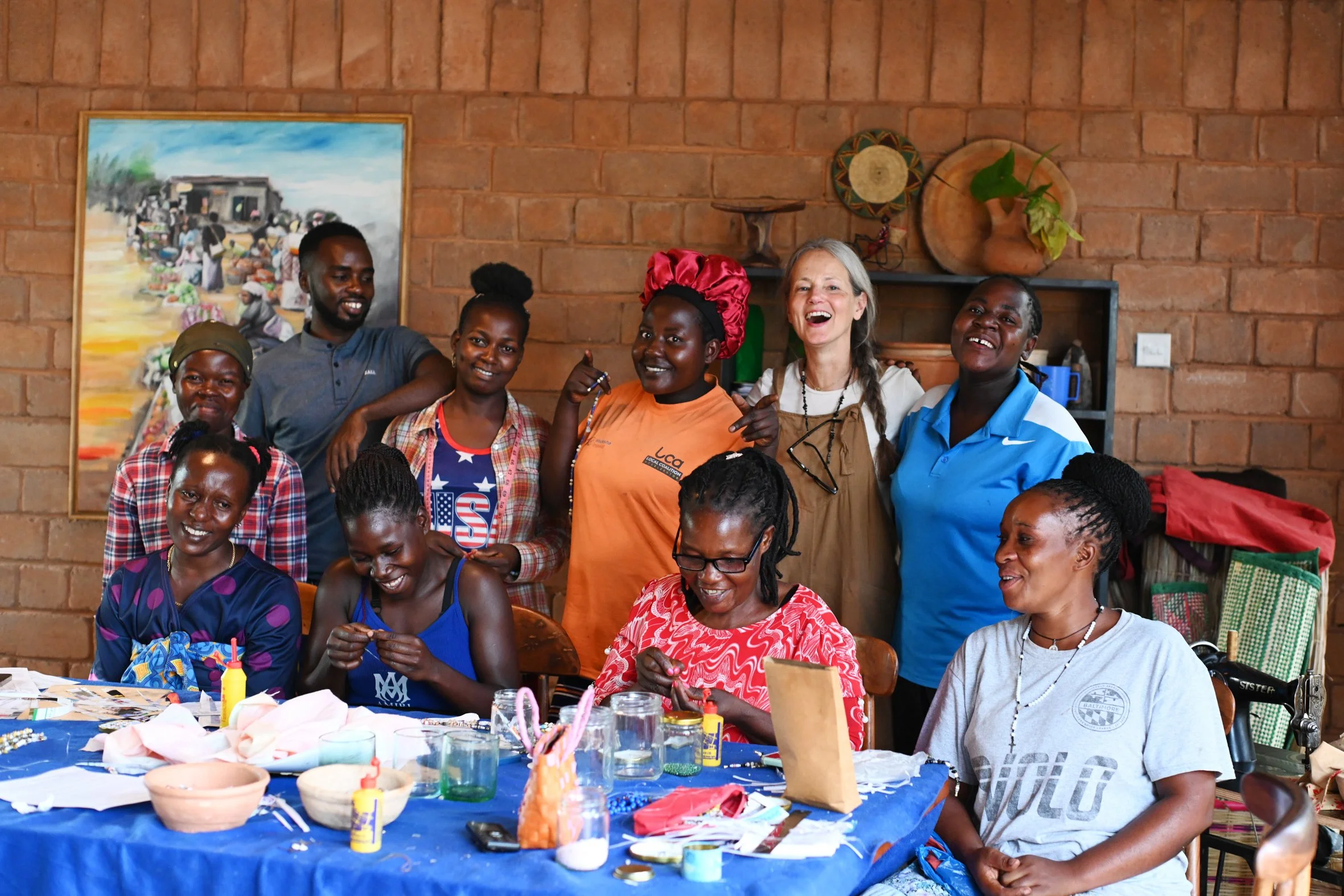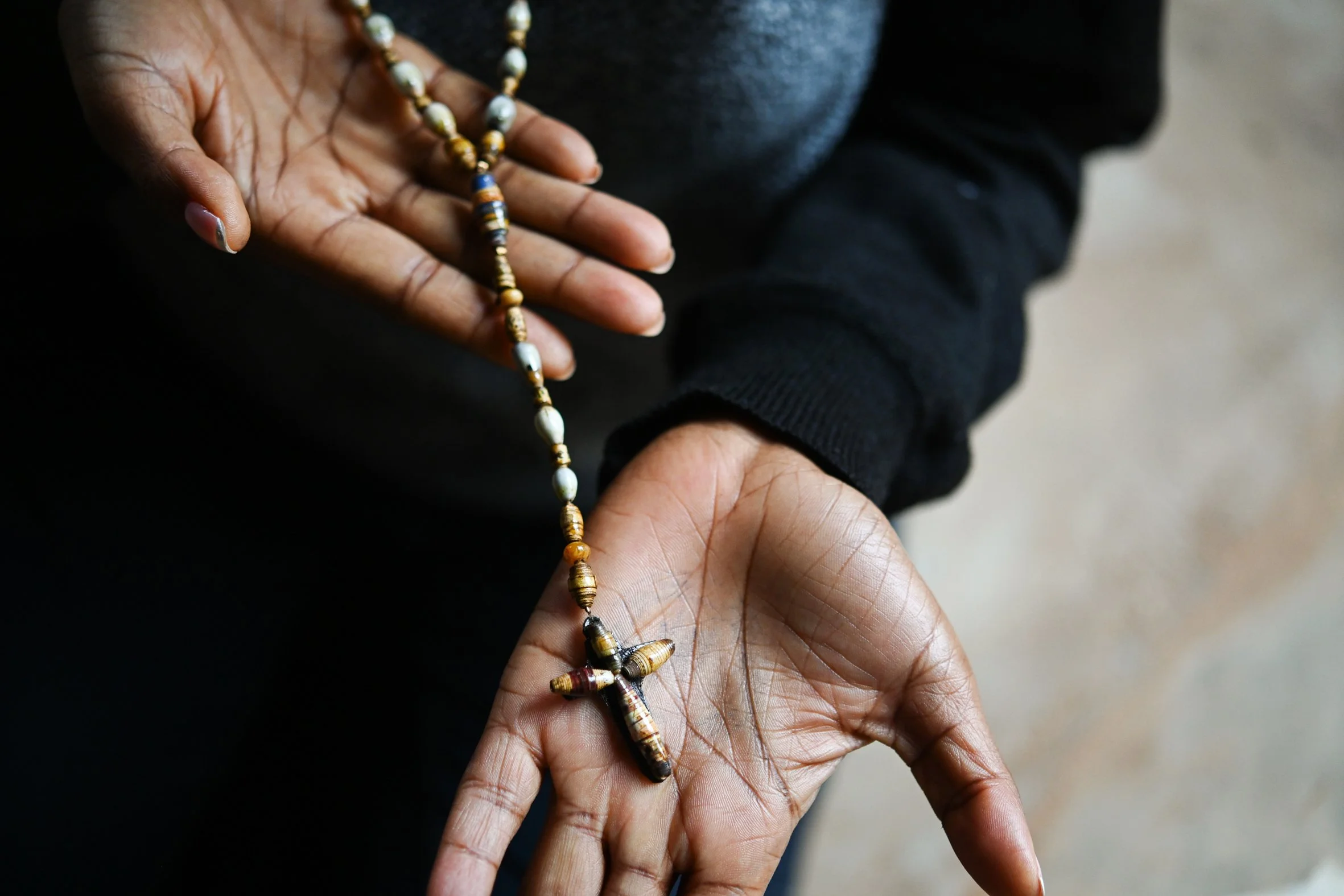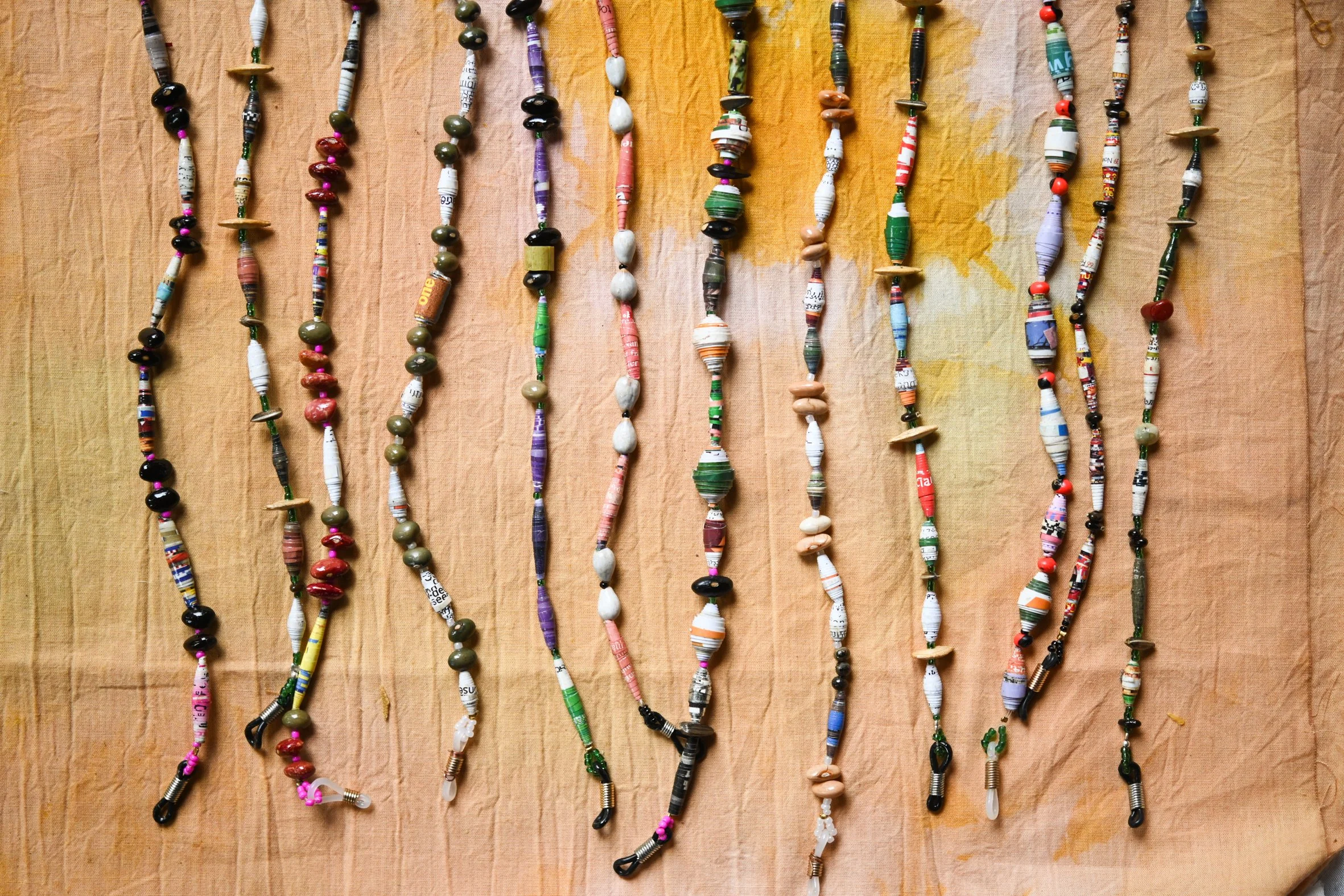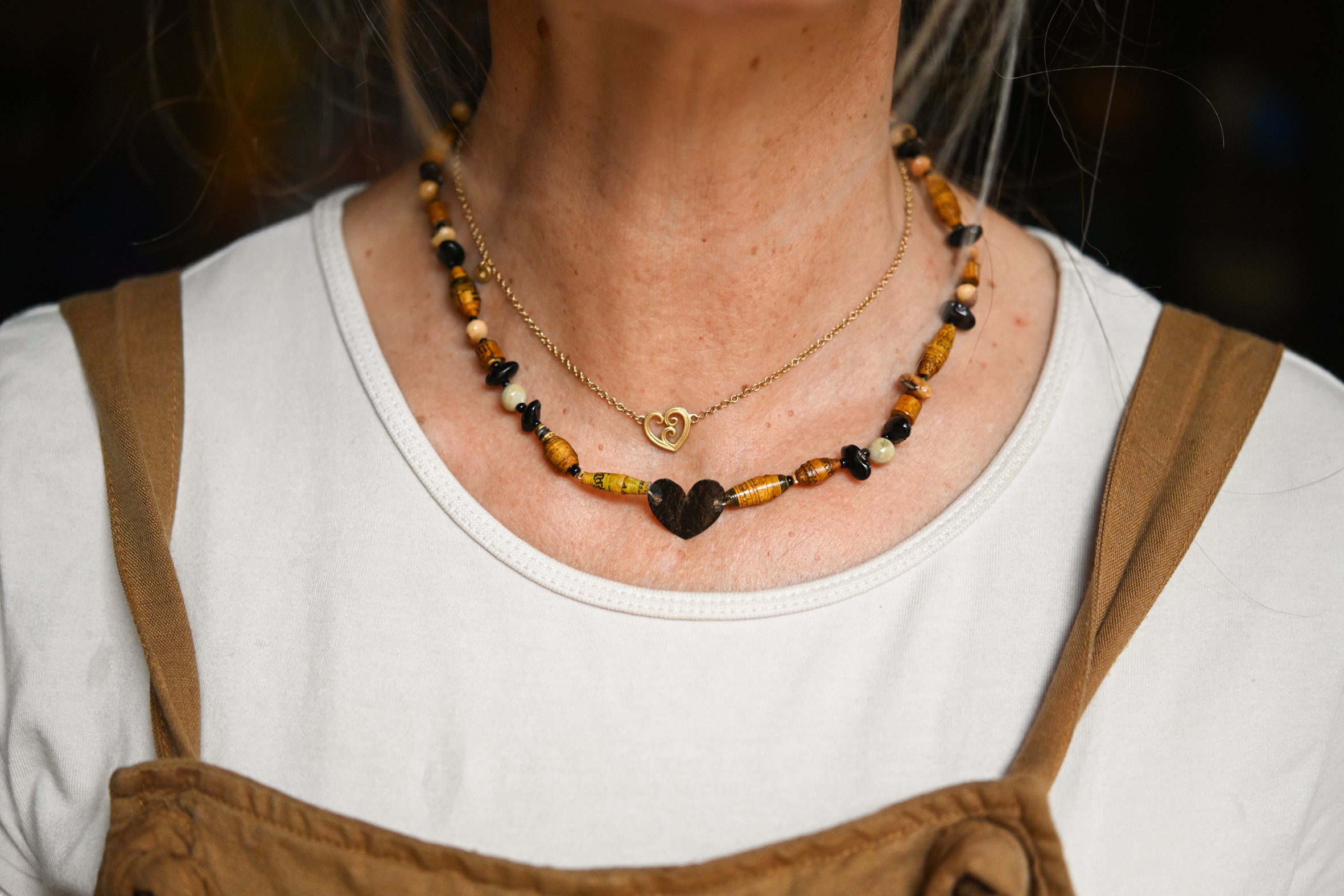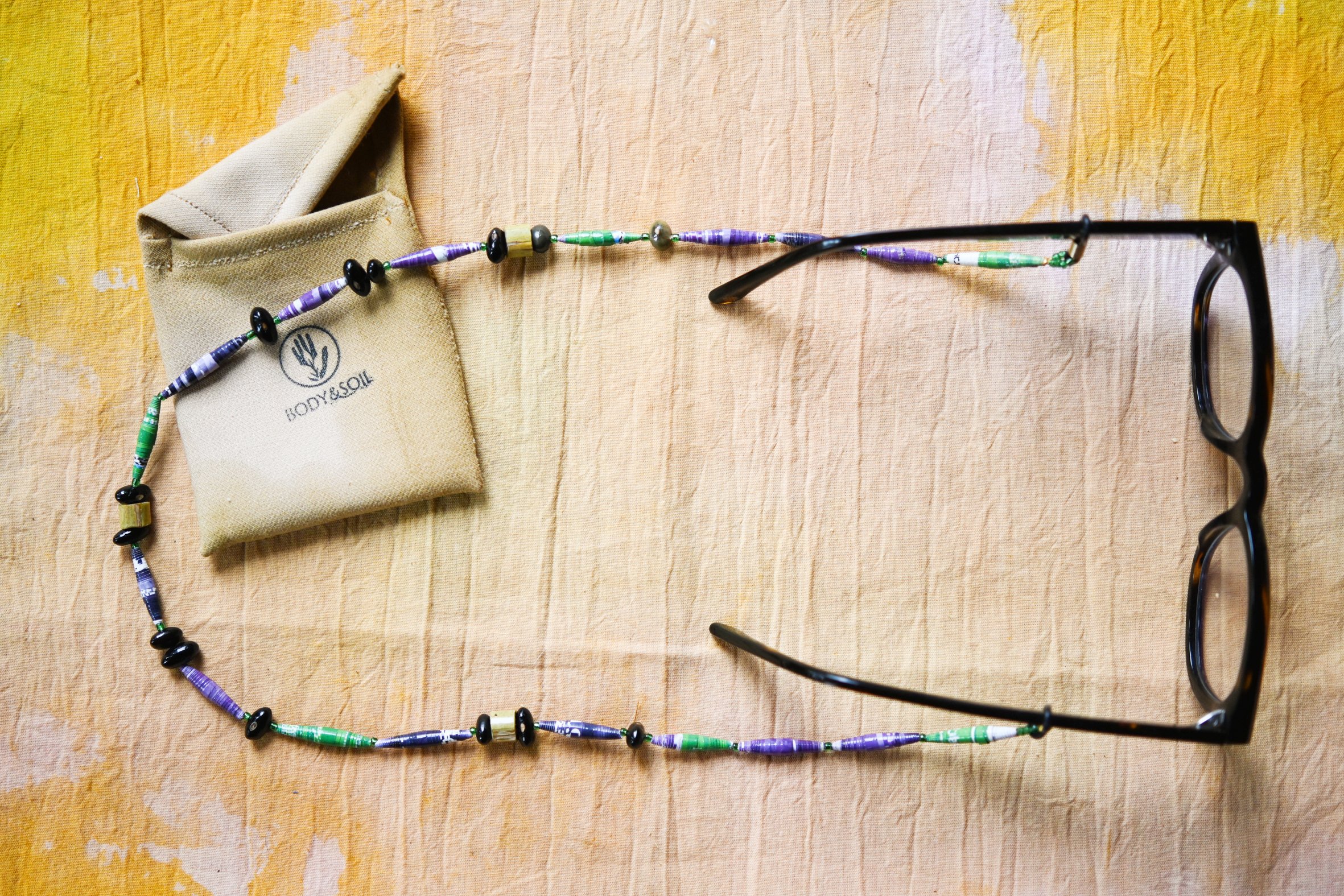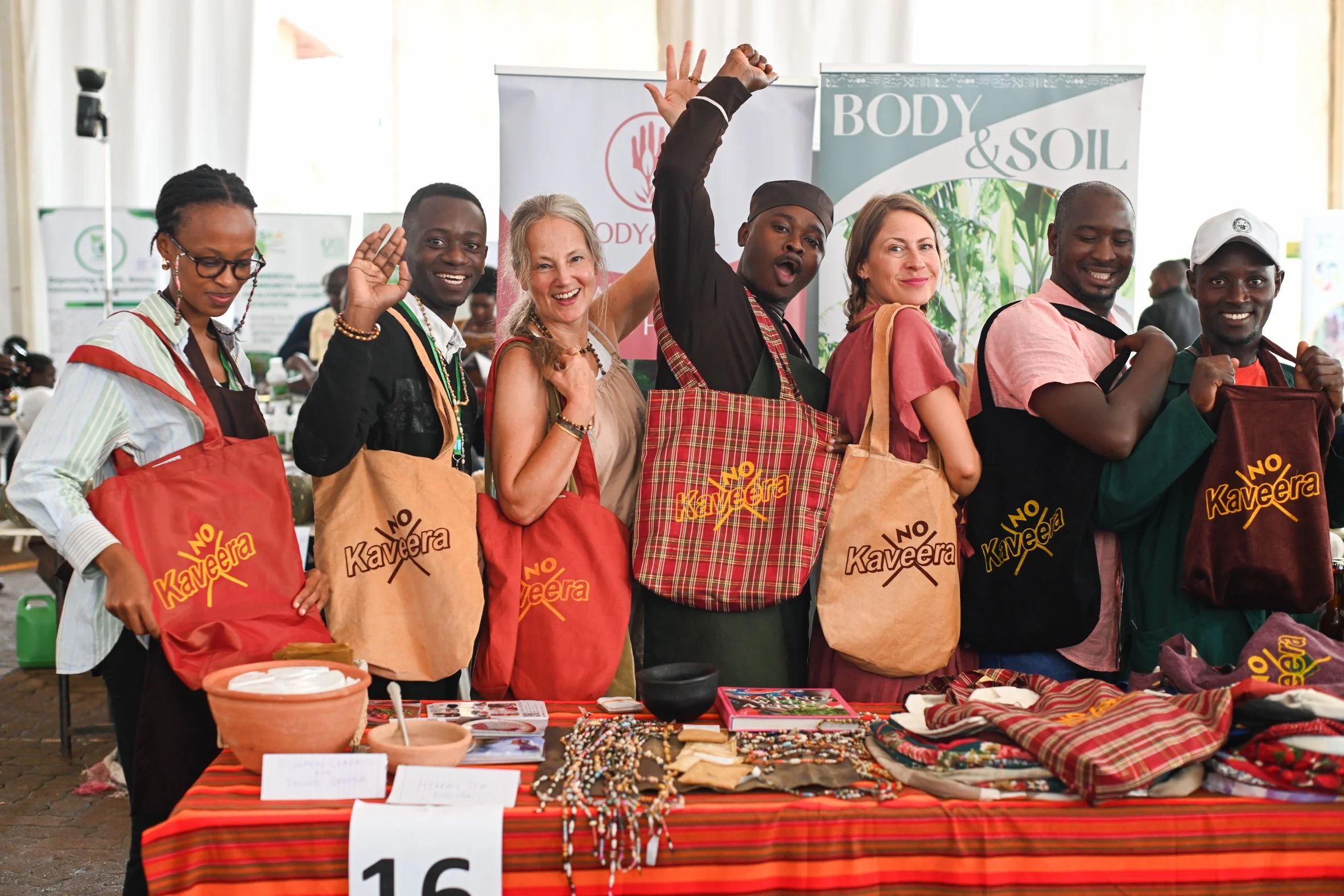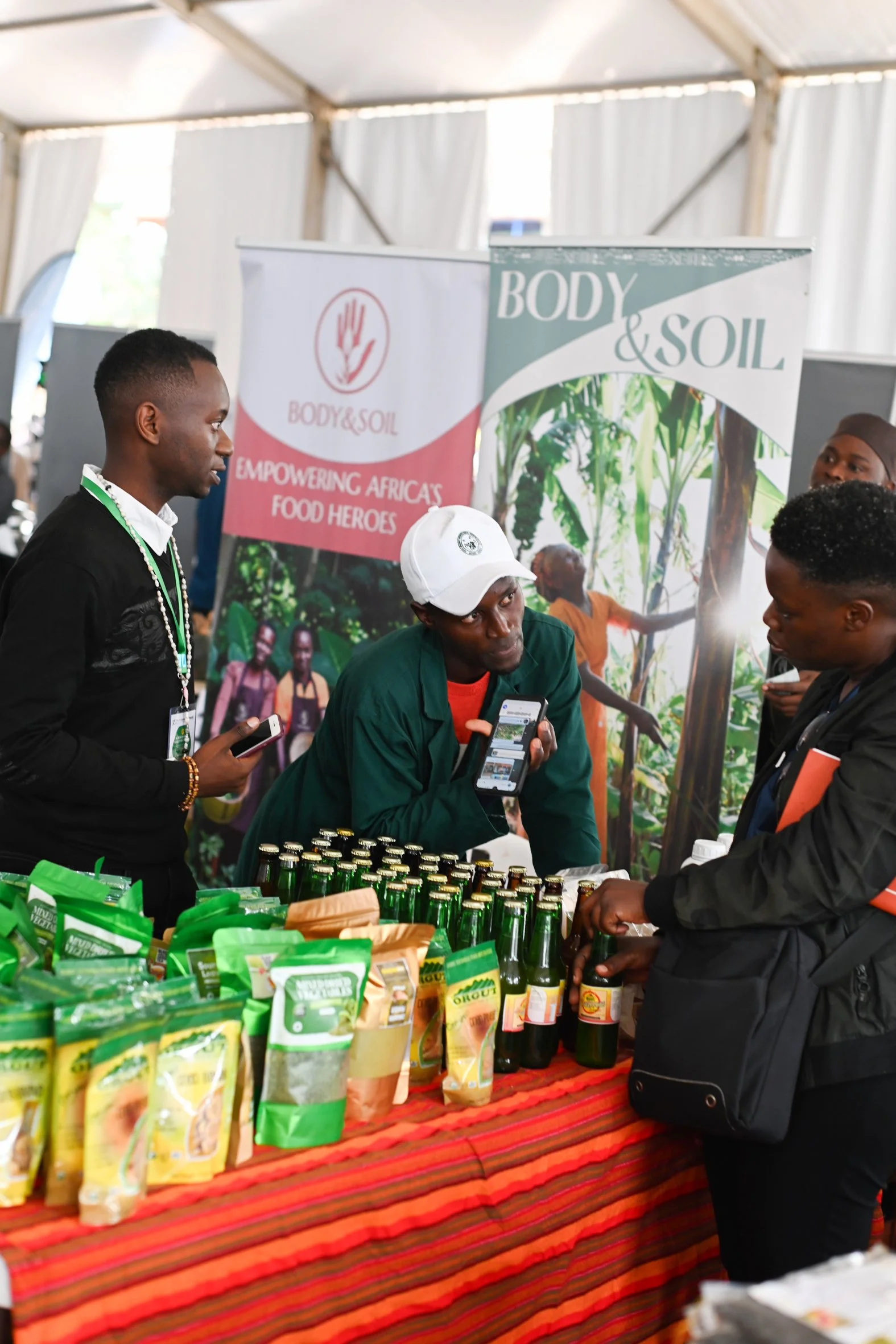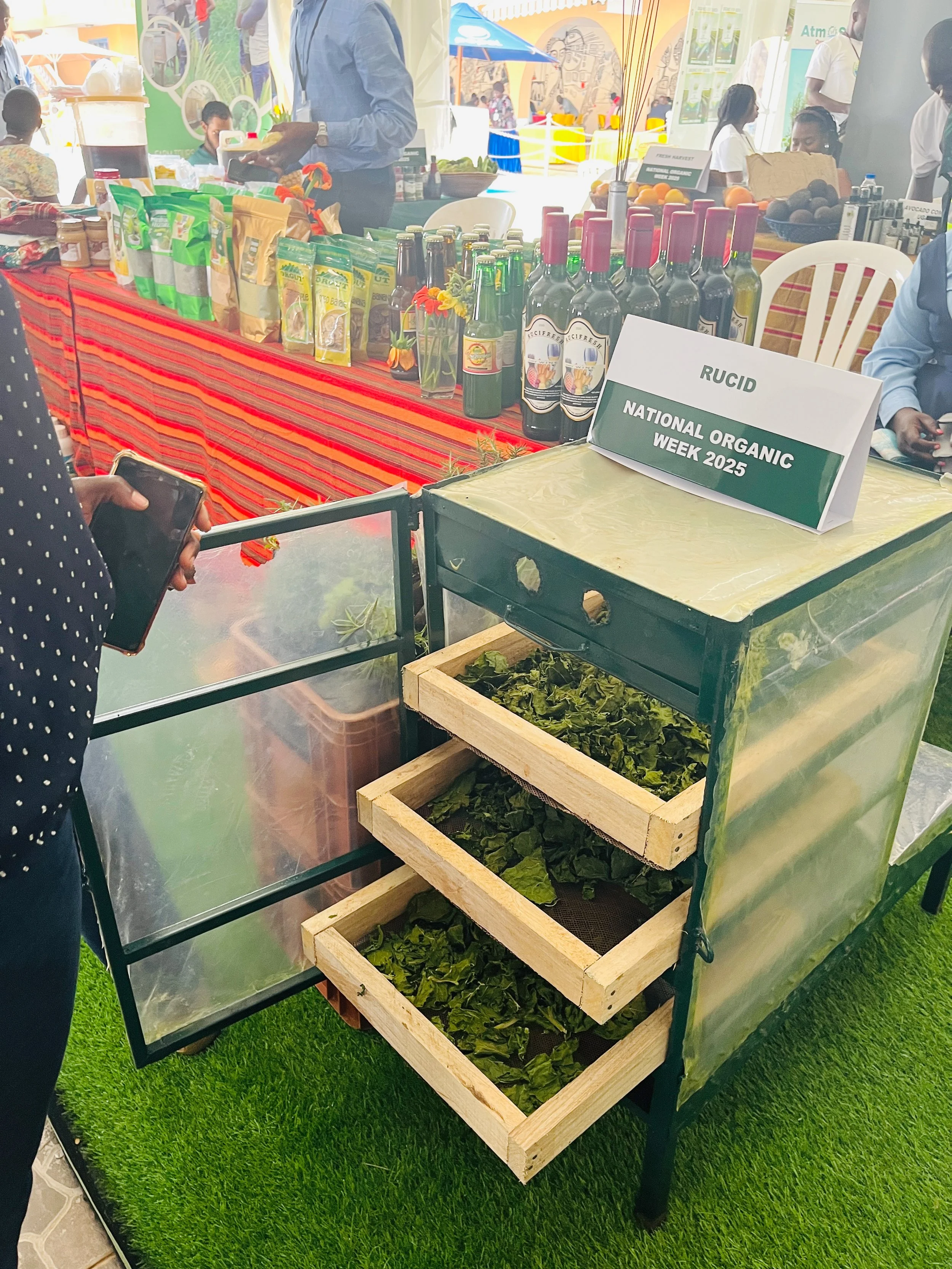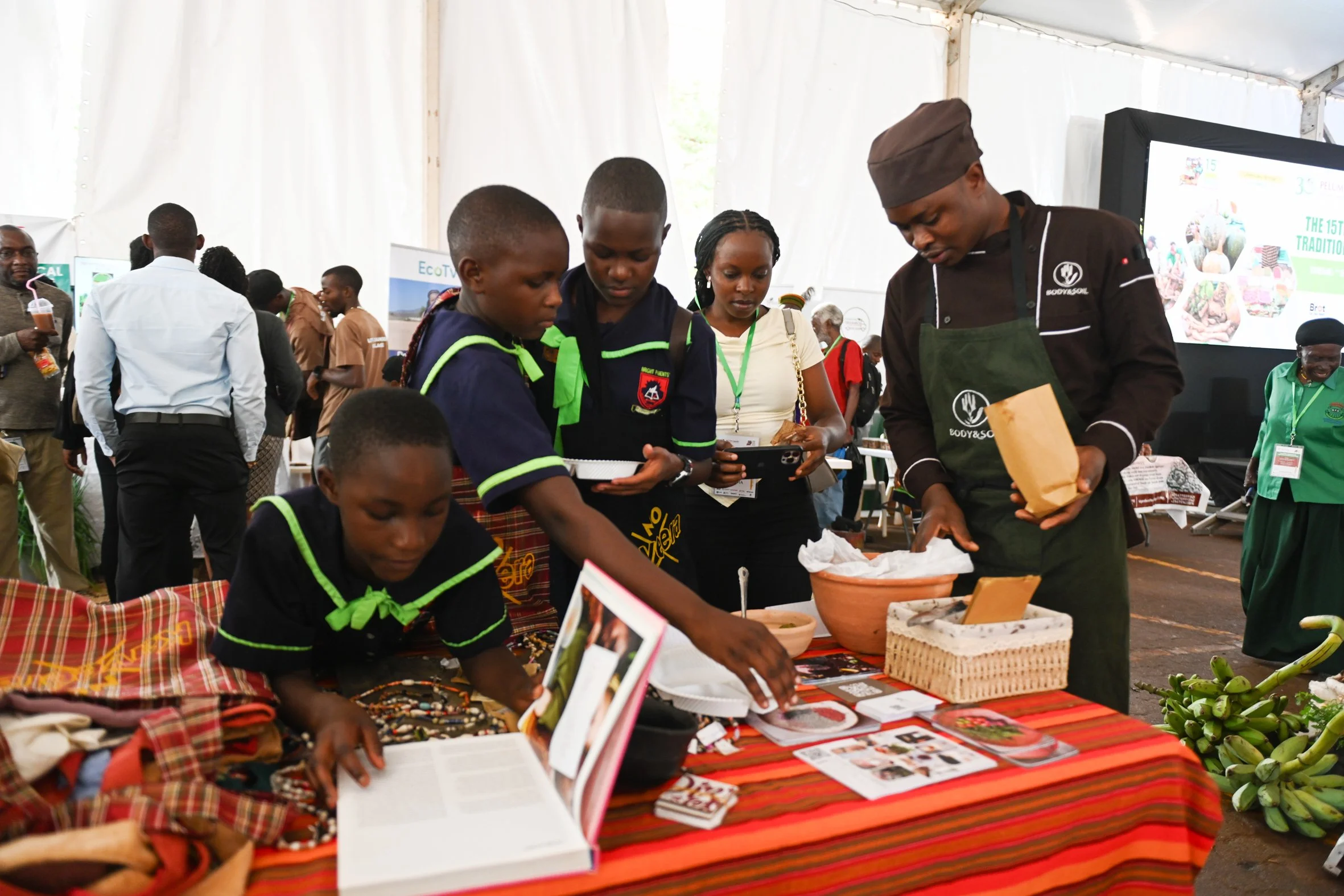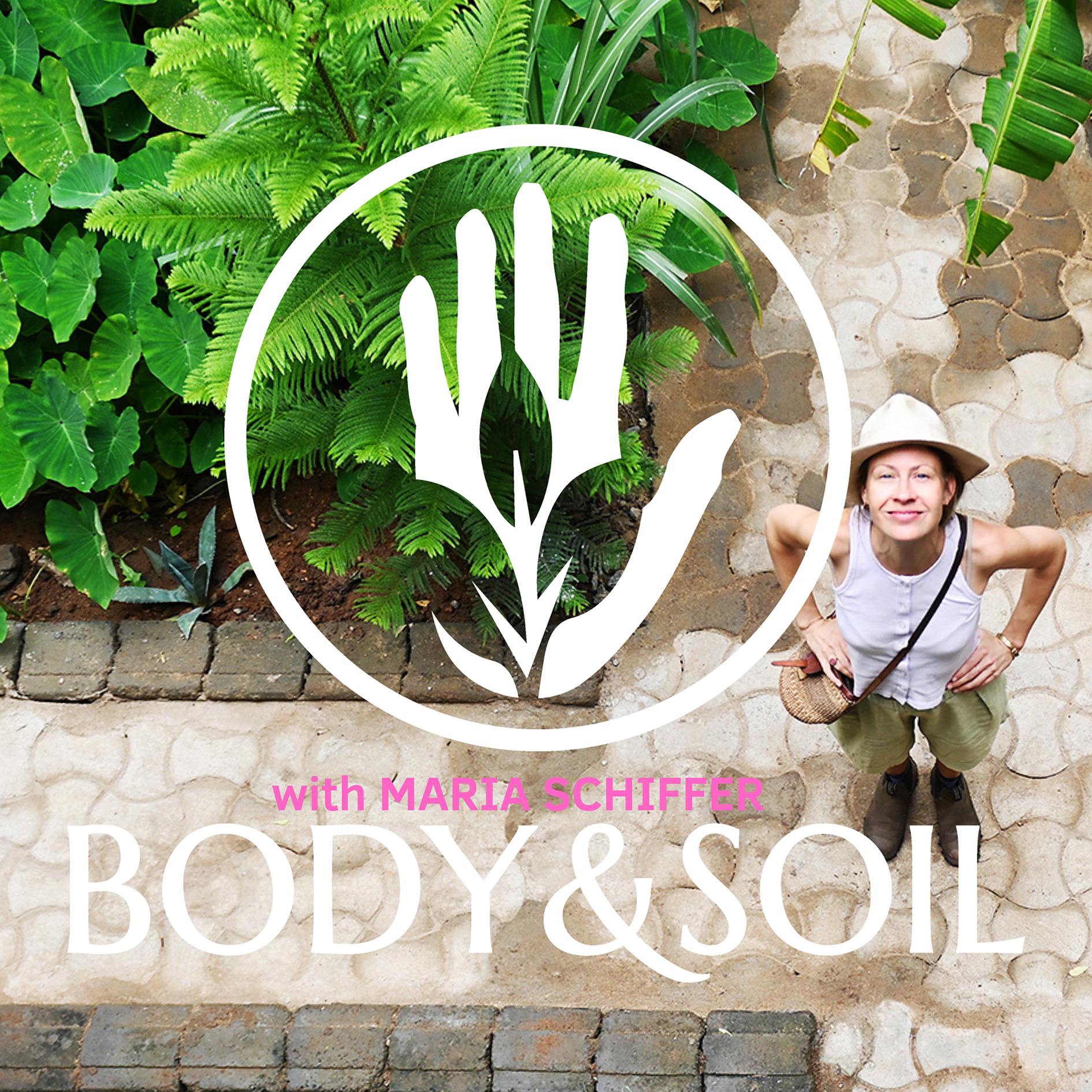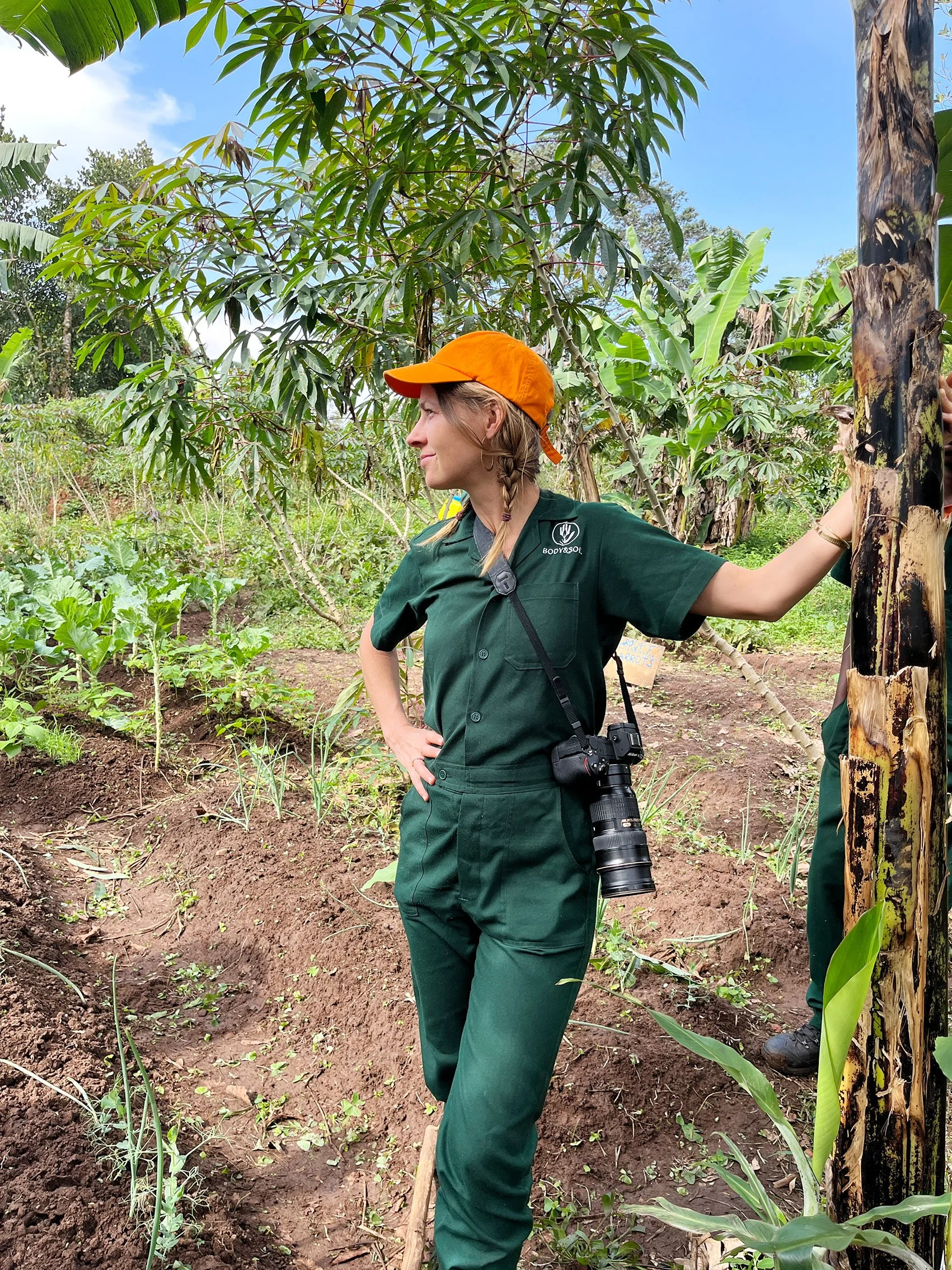October Yield
A month full of firsts: harvest, guests, products, and podcast.
It was a yield worth working for!
This weekend started differently, not with my usual morning ritual—no walk, no run. Instead, I found myself in the kitchen with Bonny and Clinton, our chefs, preparing a versatile BODY&SOIL breakfast for our guests. They arrived on Friday: a family, two kids and their grandmother. They booked a beading workshop, harvested beans for their own dinner from our garden, and helped roll out their pumpkin chapati for breakfast.
BODY&SOIL is not turning into a lodge. Instead, it’s a place for people who are curious and want to connect with a local learning experience, like how to make natural pesticide, local flours, or how to make paper beads and natural dyes. This aspect of creating a side income is important because the long-term vision is independence — becoming self-sufficient through workshops, products, trainings, and curious guests who are looking for something different and real.
These were not our first guests, but the first ones who found us not on social media but through promoting ourselves in Kampala. That was a first!
Above: Our visitors harvesting and learning with the RUCID and BODY&SOIL team — how to bead, make natural plant protection, and local flours.
The past month has been full of “firsts,” not as items on a checklist, but as moments of deep gratitude for the progress.
1. Our Demo Garden
I’ve always had this idea stuck in my head of creating a permaculture or syntropic garden with at least 30 different crops. Science shows that if we eat 30 different plants per week, including beans, seeds, nuts, herbs, and spices, our body gets everything it needs. The soil does too. I kept that number in mind but then forgot about it because life here is busy.
We started planting our B&S demo garden in June on less than half an acre at RUCID College. Honestly, I didn’t know if it would work since I’m not a farming expert. So we brought in Joseline Ninsiima, an expert in local syntropic and permaculture, and put two RUCID students, Hellen and Silas, in charge of monitoring and upkeep. They documented everything: what we planted, where, what worked well together, and what didn’t.
A few days ago, we sat together and I asked, “So, where are we now with the crops?” Hellen gave me their list, separated into perennials and annuals. “We have planted over 30 different crops.” I nearly fell off my chair. That doesn’t even include the herbs and spices we planted in the garden. But what stayed with me was what Silas said afterward:
“The best part wasn’t the planting. It was sitting together every evening, figuring out solutions as a team. I never had that before.”
That hits me because the core of BODY&SOIL is connection. Something I had lost in Germany — connection to people, to nature, to ideas and local solutions, to something bigger than myself. Every result we have comes because we are connected and moving as a team.
2. The Schools
Everything we learn in the garden is shared with our primary and secondary schools, which are now preparing for the first BODY & SOIL competition on November 19th. It’s a big deal — not just for us, but especially for the kids. Parents are coming, and we’ll be exhibiting everything we’ve been doing, from soil to plate. All the children will be rewarded with our new “No Kaveera” bags, made possible by a BODY & SOIL sponsor, and the most diligent students will receive tools they can use. A handful will even have their school fees covered for the next term as a first prize.
I think our biggest surprise was at the secondary school. When we began working with the teenagers in March this year, it felt like no one was interested. We almost considered giving up on the school, but I’m so glad we didn’t. Now, when you walk through their gardens and see each child taking charge of their own bed, you witness transformation and empowerment happening in real time.
One student said, “I planted millet because I admired seeing it in the garden.” Another made garbage bins from old sacks and sticks and placed them around the whole school, without anyone asking them. They just did it.
Above: Kids in the agriculture club, at our secondary school, getting their beds ready for the competition.
On the other hand, the gardens at the primary school have become more challenging than they used to be. Because the kids are young, the work can’t be done without close supervision, and the teachers felt the kids were kind of slacking off. So, feeling like we were starting from scratch again, we split the agriculture kids club into three groups, each led by a teacher, and announced the competition. Suddenly, everyone was back on track.
Like everything we do, it’s about tracking what works, why it works, and how we can scale the solutions. I can already see BODY&SOIL school competitions happening across the country if this proves to be a key to motivation.
“We are formal but informal. We let things flow,” Stuart said to me. I think that’s one of the keys to succeeding with BODY&SOIL. We don’t have anyone handing us a box with fixed numbers to reach, telling us how many women to work with or how many beds to cultivate for the next funding round. Progress doesn’t work that way.
Solutions have to come organically, with time and practical knowledge. Or as Kato, a RUCID student, said to me while tending the tomatoes, “I trust the process. I prefer actions to theory.” Kato has been one of the RUCID students who successfully developed a system of growing tomatoes in sacks using crop diversity and staking. These tomato sacks are now used everywhere at RUCID College and at the schools. We have already harvested over 200 tomatoes, with many more still ripening. This is huge since tomatoes are one of the most heavily sprayed crops around. How you can do that yourself, we'll be showing you in our YouTube Channel launching this month!
3. Team „No Kaveera“
But this isn’t the only progress we’re making. Another huge highlight was launching our first “creative green” products from our workshops.
The first product is our “no kaveera” bag, meaning “no plastic bag” in Luganda, and they’re flying off the shelves. They’re beautifully crafted by women we trained, out of second hand fabric and carry a powerful message that Ugandans want to wear. Like our student Kato, who knocked on my door this time not regarding tomatoes, but wanting to buy one for his mom. I almost cried because that’s exactly the vision of BODY&SOIL: creating meaningful, unique products anyone can afford, from students to tourists.
But the impact goes beyond that. Remember our cleaning lady, Jennifer? She joined the workshop, learned to sew, and through bag sales, we’ve already been able to pay the women. Jennifer made 35 bags, more than anyone else, and with that money, for the first time in her life, she paid school fees for all four of her children.
Jennifer continues to amaze me. When she’s not keeping our place tidy, she’s at the RUCID canteen mending clothes for customers and finding new ways to earn income with the skills she’s learning here. If that’s not empowerment, I don’t know what is. It gives me goosebumps when she sits with me in the evening in my kitchen, telling me about the progress she’s making.
4. Our seed-to-chain products
We had the amazing goldsmith Michaela Roemer with us for almost three weeks. Together with interested women, we held a seed-to-chain workshop where we developed unique products like glasses holders, necklaces, and rosaries made from paper beads and seeds. We used natural dyes from flowers to color the paper and repurposed second-hand materials. Corrugated rooftops became crosses and hearts.
These products are more than just beautiful — people love them, and they’re already generating income. What I find even more amazing is that Michaela, with her years of experience as a successful goldsmith, including jewelry projects in South African townships, developed our first "Creative Green Manual“ that we plan to follow and scale so others can learn to be creative too.
5. Expo in Kampala
Together as a team, RUCID and BODY&SOIL shared a table at the Indigenous Food and Seed Fair as well as the Organic Expo in Kampala. We didn’t just show off the bags and beads — we brought Samuel Nyanzi’s portable solar dryer, developed for small farmers and schools. Also on the table for sale were dried greens and healing Black Jack tea, created by his processing club. Our chef Bonny prepared tea, pumpkin chapati, and pasted greens for people to taste. People were skeptical at first, but then they loved it and even brought new customers to our table.
I stood there watching us as a team, talking to people and selling what we do with love and passion. I had to think back to December last year when it was just me alone at the African Business Summit in Nairobi, with a vision, some seeds, and postcards on the table. The feeling of how fast we are progressing together is hard to describe.
6. BODY&SOIL Podcast
And now, a personal highlight and a bit of my story — and another first. The first episode of the BODY&SOIL podcast is live. I recorded it in my bedroom and edited it all on my own. It has some small hiccups, but it’s honest and a true story.
This podcast is here to share our journey and showcase experts with solutions that connect nutrition and regenerative agriculture here in Africa. And I’m your host.
Here’s the first episode — feel free to listen to this 30-minute personal story. Don’t forget to subscribe, rate, and if you like it, please share.
If you don't have Spotify you can listen here on Sound Cloud.
And finally
The upcoming BODY&SOIL school competition on November 19th will honor students who have poured their hearts into their clubs, beds, and projects. Many of their parents face the challenge of paying school and tuition fees for the next term. These costs range between 60€ and 100€ for primary and secondary school kids, and up to 250€ for RUCID students per term.
If you’re thinking about a Christmas gift that matters, this is a chance to support these kids and RUCID students to keep going and invest in their futures. If you feel you want to help, just reach out to me.
Thank you for taking the time to read my long detailed journal. Thank you for being here.
With love from Uganda,
Maria

